A key figure in Hong Kong’s art scene, Ellen Pau raises our awareness of our own physical presence and ignites a contemplation of what it means to be, to exist, here, now, and beyond that, the space each of us occupies. Born in Hong Kong and a graduate from Hong Kong Polytechnic University with a diploma in Diagnostic Radiography in 1982, Pau has worked as a radiographer in Queen Mary Hospital ever since. Pau was plunged into the Hong Kong art scene by her intense interest in video art, new media art, as well as other art forms such as music, poems and performances. Beyond artistic creation, Pau has also been a leader in the promotion, curation and education of art and culture in Hong Kong through founding several important initiatives such as Videotage and the Microwave International New Media Arts Festival.
As one of the earliest pioneering video artists in Hong Kong, Pau produced her first super-8 film Glove in 1984. Her early works first appeared in local screening clubs and then resurfaced on the international arena starting in 1987. After creating a series of single channel video works, Pau then traversed to incorporate sculptural elements and ambient sounds into her video installations during the early 1990s. Pau’s body of work has been a journey into the exploration of possibilities in visual art languages by always sticking closely to the current technological developments at the time. In tandem, a running theme and important motif throughout Pau’s thirty years of practice is her concern with Hong Kong’s political climate, social livelihood and the changes of urban lives.
Besides her profession and artistic practice, Pau has been a key character in the promotion, curation and education of art and culture in Hong Kong. In 1986, she co-founded Videotage, Hong Kong’s oldest video artist collective and earliest archive for media art, with Wong Chi-fai, May Fung and Comyn Mo. In 1997, she founded Microwave International New Media Arts Festival, an annual event that consists of exhibitions, conferences, seminars, and workshops, bringing art experiences to thousands of Hong Kong audiences. Pau has curated numerous exhibitions, including Digit@logue for the Hong Kong Museum of Art and the ZERO1 Biennial in San Jose. In 2014, Pau was appointed by the Hong Kong Arts Development Council as a representative of the Art Form Group in Film and Media Arts, and in the same year, she also served on the interim acquisition committee of M+ in West Kowloon Cultural District.
Ultimately, Pau is a seminal figure in the Hong Kong art scene, weaving a practice that engages as well as pushes the boundaries of technology, while reflecting on society. Moreover, Pau has been a key contributor to society, through her medical activity as well as initiation and leading of cultural activities. As such, through multiple avenues and outlets, Pau prompts an exploration of the self and the times we are living in, ever shifting and evolving.
Pau’s works have been extensively exhibited worldwide in film festivals and art exhibitions, including Hong Kong International Film Festival (1990, 1993, 1997 & 2000), 8th International Film Festival for Women (Spain, 1992), Copenhagen Cultural Capital Foundation, Container 96 (Denmark, 1996), Asia Pacific Triennial of Contemporary Art (Lisbon, 1996), Johannesburg Biennale (1997), Hong Kong Pavilion at the 49th Venice Biennale (2001), Gwangju Biennial (2002), Liverpool Biennial (2003), Sydney International Film Festival (2004), Para Site (2019), Taipei Biennial (2023), and Sharjah Biennial (2025), among others. In 2001, Recycling Cinema, as one of her most significant video installations, was first presented at Hong Kong Pavilion in the 49th Venice Biennale. In 2022, Pau was co-commissioned by M+ and Art Basel to create The Shape of Light for the inaugural M+ Facade project. Her works are archived in collections such as VMAC, Video Bureau, Griffith University, Pompidou Centre, M+, and various private collectors. She has also been appointed as the curator of “Film Program” at Art Basel Hong Kong, 2026. Acknowledging Pau’s contribution to the development of video art in Hong Kong, Asia Art Archive has created in recent years a comprehensive archive dedicated to her.
Ellen Pau Hong Kong, B. Hong Kong, China, 1961
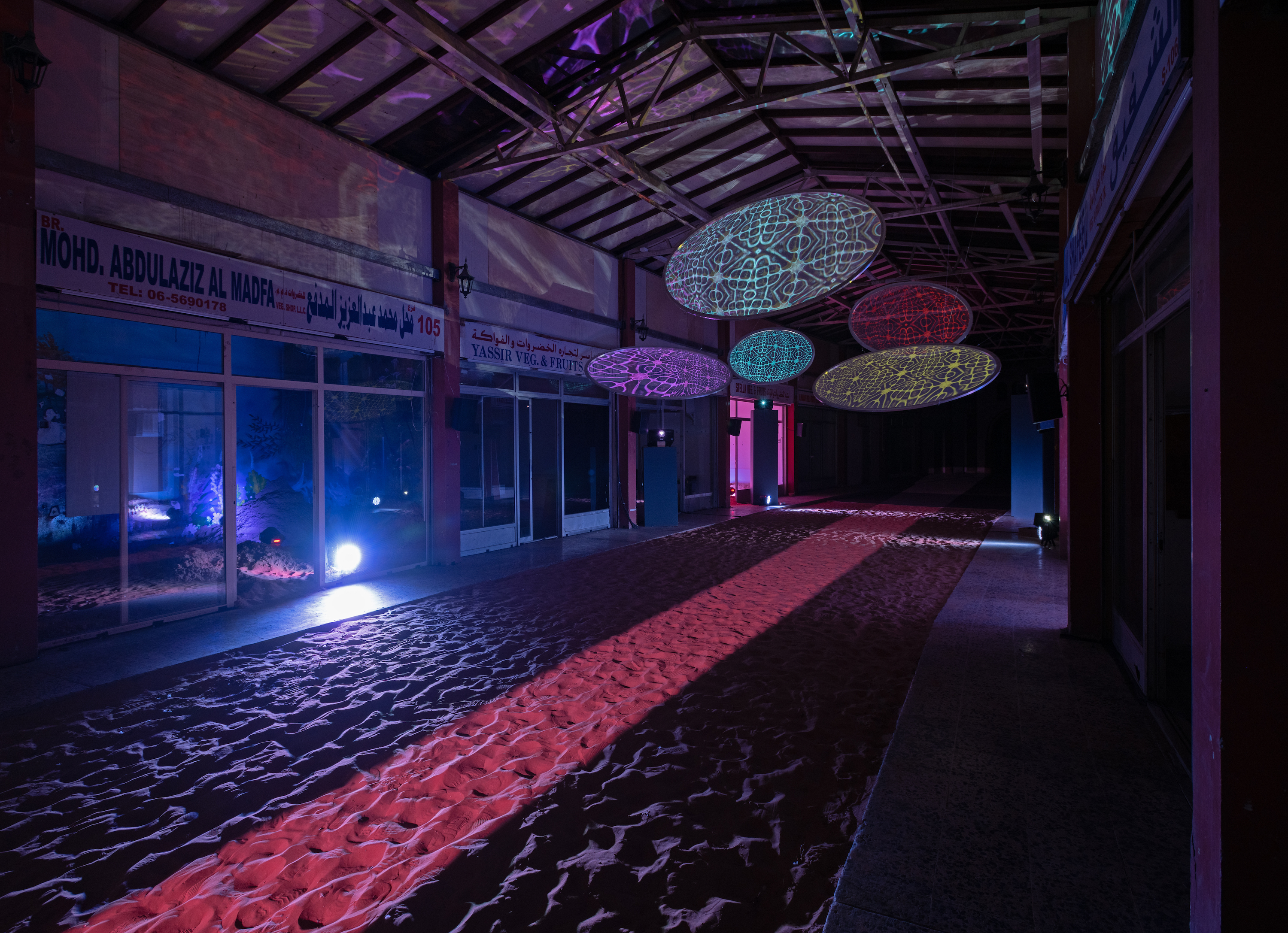
Ellen Pau, ‘Terroir (Desert Rose)’, 2024. Commissioned by Sharjah Art Foundation, with the support of Hong Kong Arts Development Council.
Installation view: Sharjah Biennial 16, Old Jubail Vegetable Market, 2025. Image courtesy of Sharjah Art Foundation. Photo: Shanavas Jamaluddin.
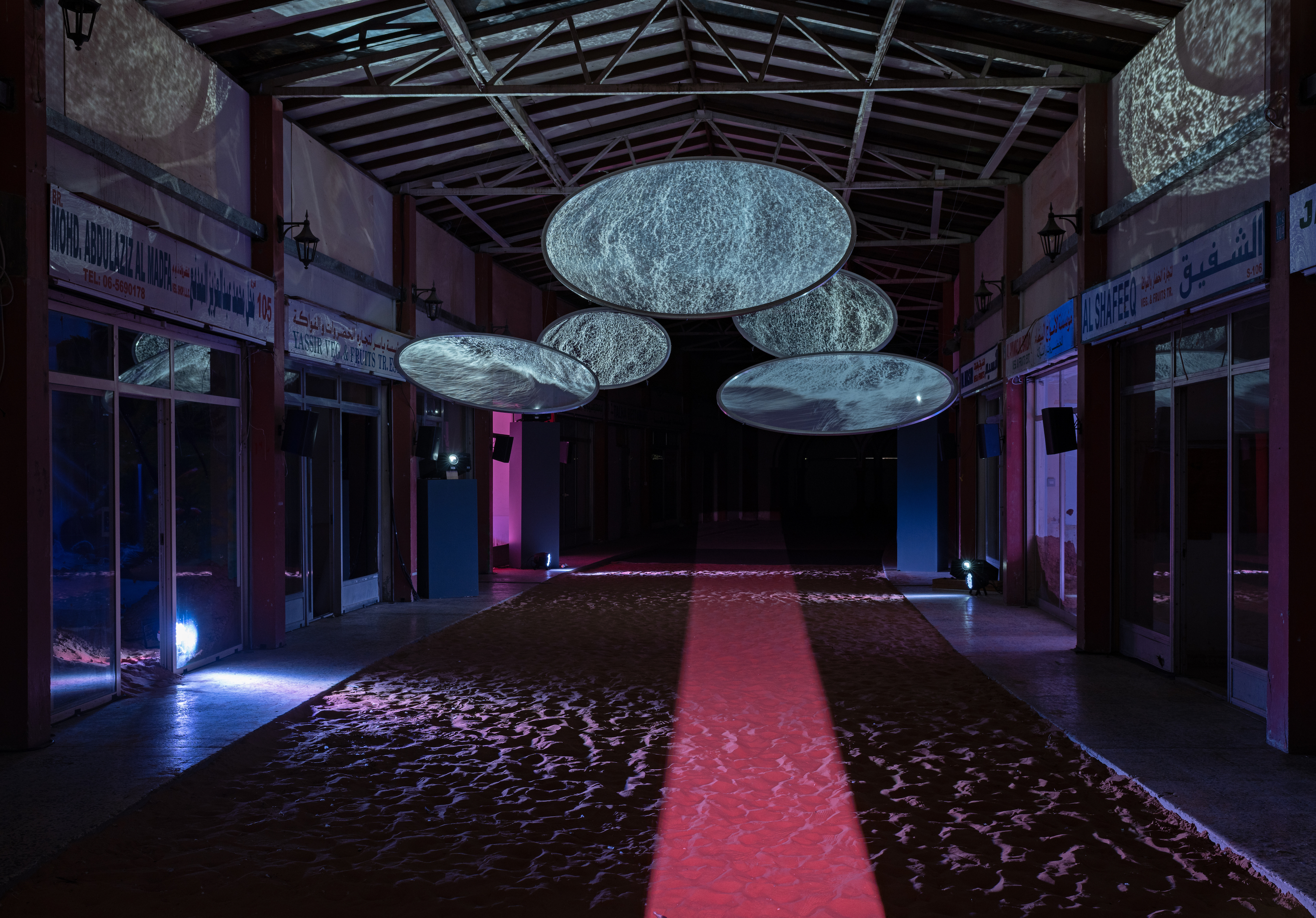
Ellen Pau, ‘Terroir (Desert Rose)’, 2024. Commissioned by Sharjah Art Foundation, with the support of Hong Kong Arts Development Council.
Installation view: Sharjah Biennial 16, Old Jubail Vegetable Market, 2025. Image courtesy of Sharjah Art Foundation. Photo: Shanavas Jamaluddin.
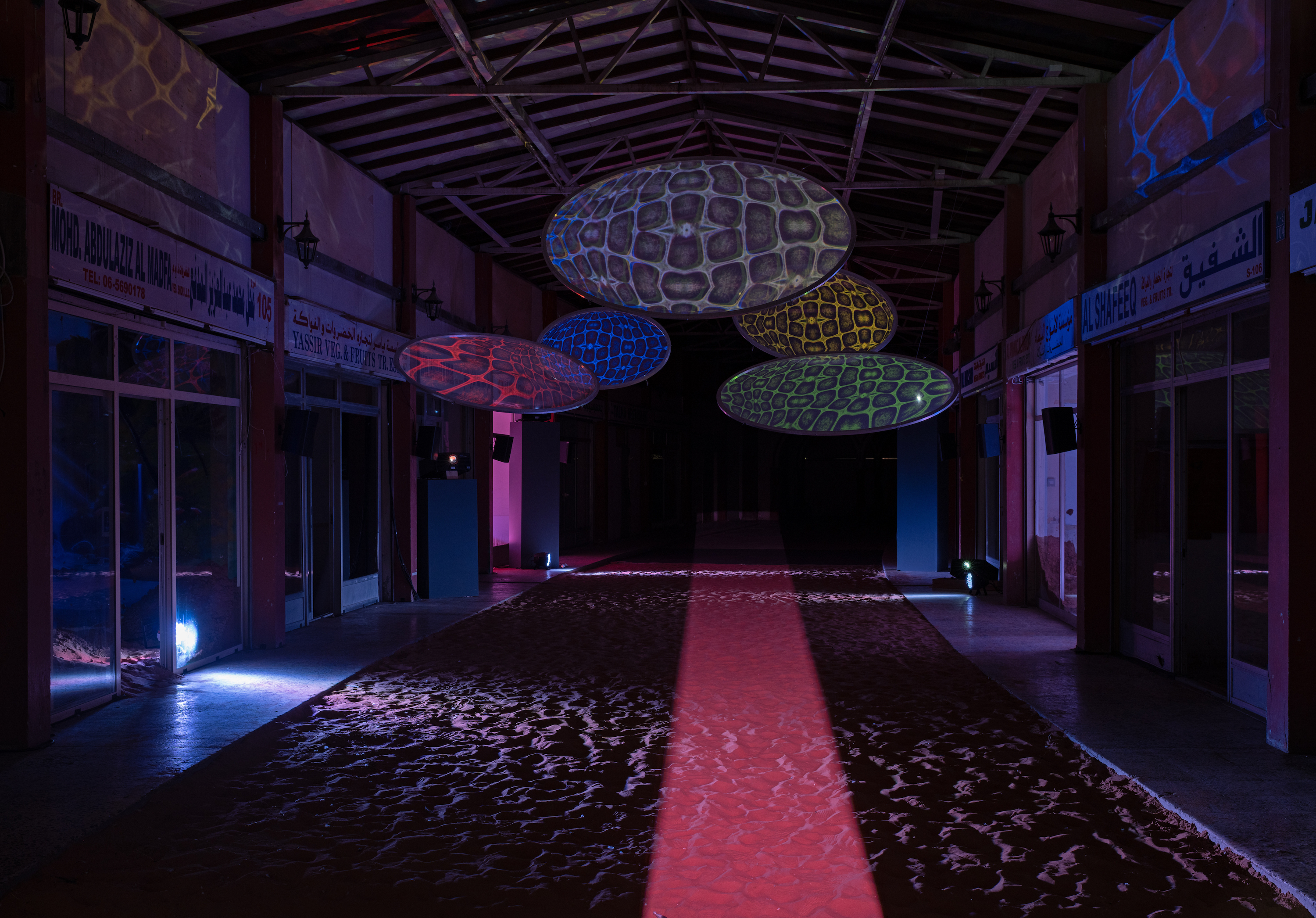
Ellen Pau, ‘Terroir (Desert Rose)’, 2024. Commissioned by Sharjah Art Foundation, with the support of Hong Kong Arts Development Council.
Installation view: Sharjah Biennial 16, Old Jubail Vegetable Market, 2025. Image courtesy of Sharjah Art Foundation. Photo: Shanavas Jamaluddin.
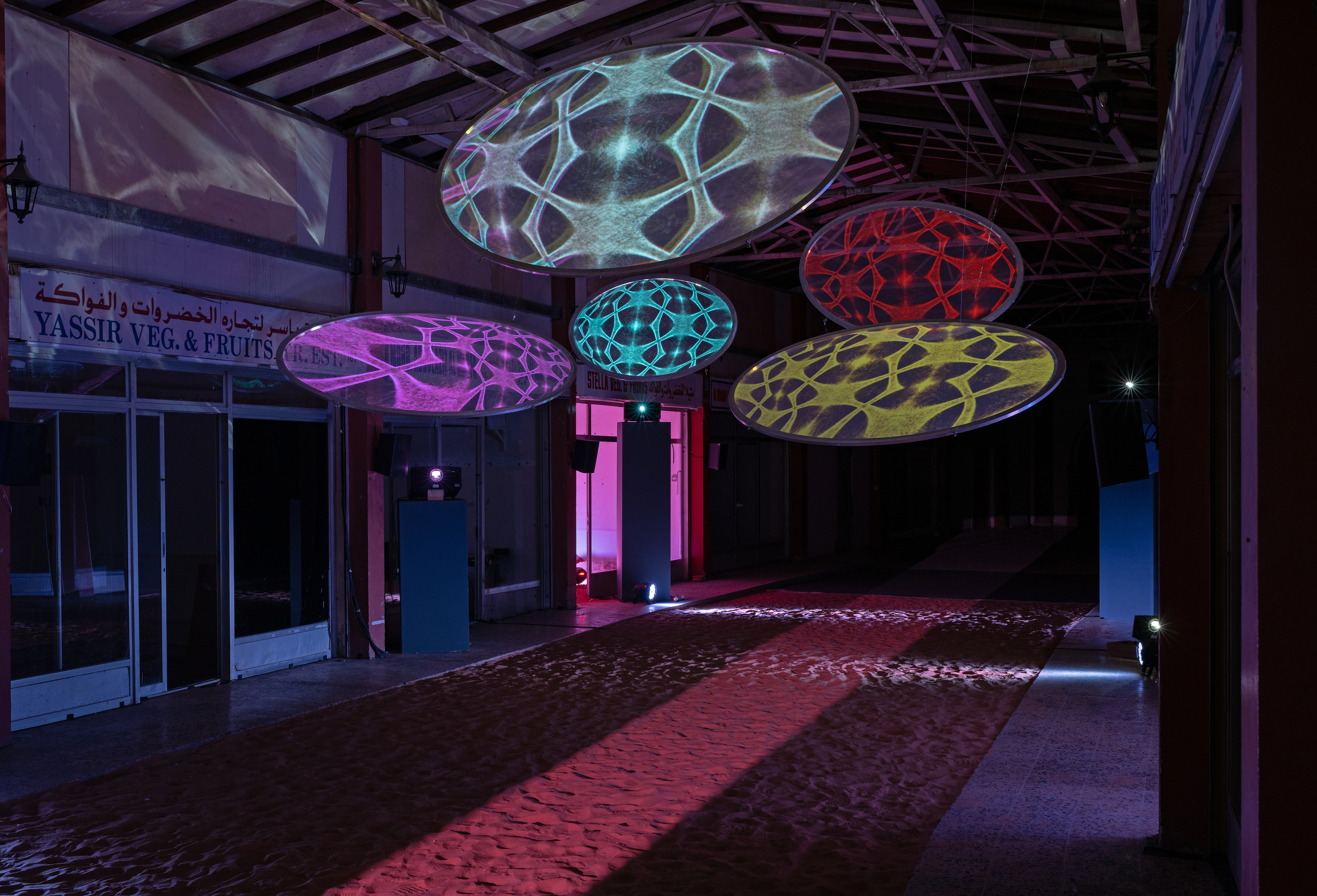
Ellen Pau, ‘Terroir (Desert Rose)’, 2024. Commissioned by Sharjah Art Foundation, with the support of Hong Kong Arts Development Council.
Installation view: Sharjah Biennial 16, Old Jubail Vegetable Market, 2025. Image courtesy of Sharjah Art Foundation. Photo: Shanavas Jamaluddin.
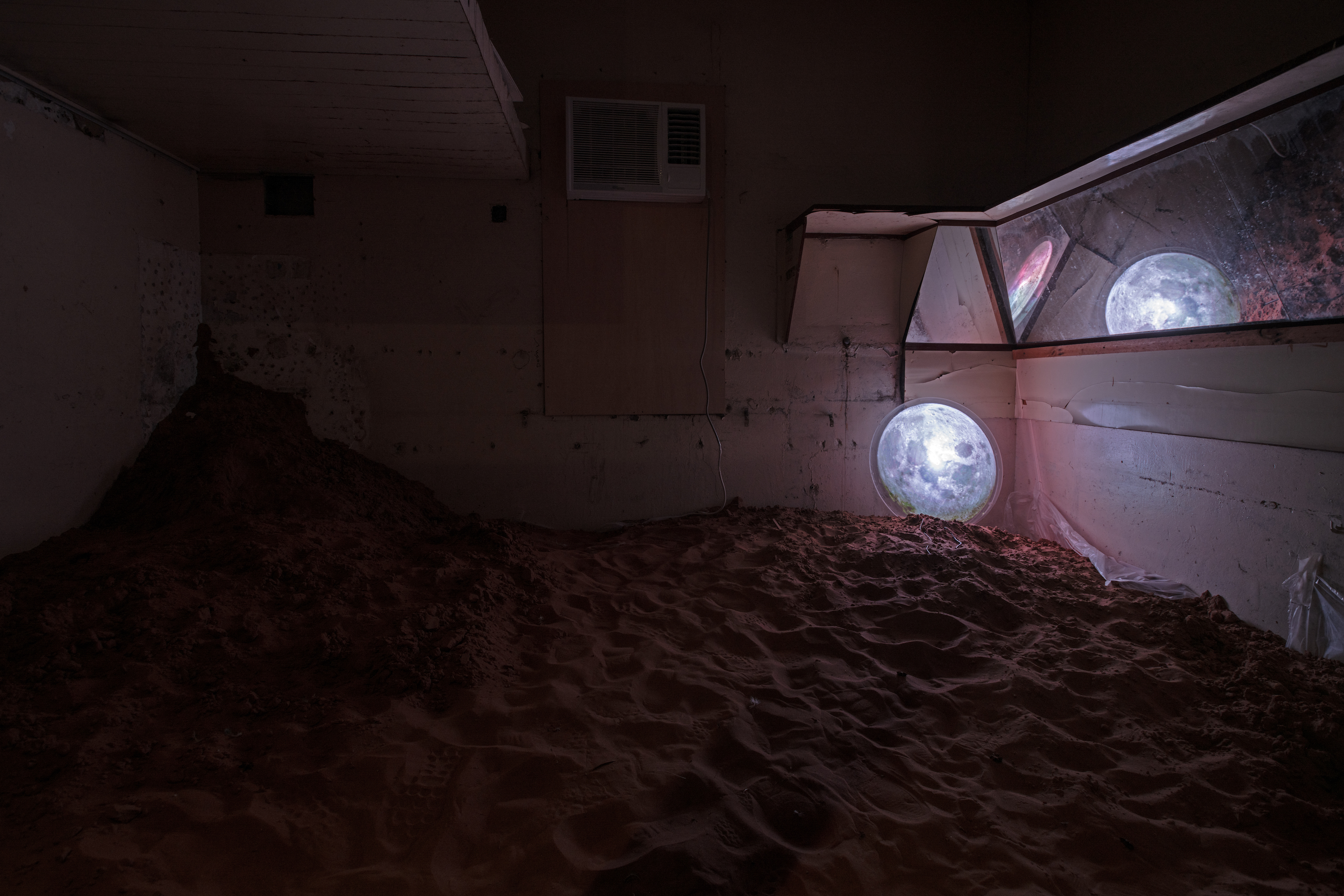
Ellen Pau, ‘Terroir (Desert Rose)’, 2024. Commissioned by Sharjah Art Foundation, with the support of Hong Kong Arts Development Council.
Installation view: Sharjah Biennial 16, Old Jubail Vegetable Market, 2025. Image courtesy of Sharjah Art Foundation. Photo: Shanavas Jamaluddin.
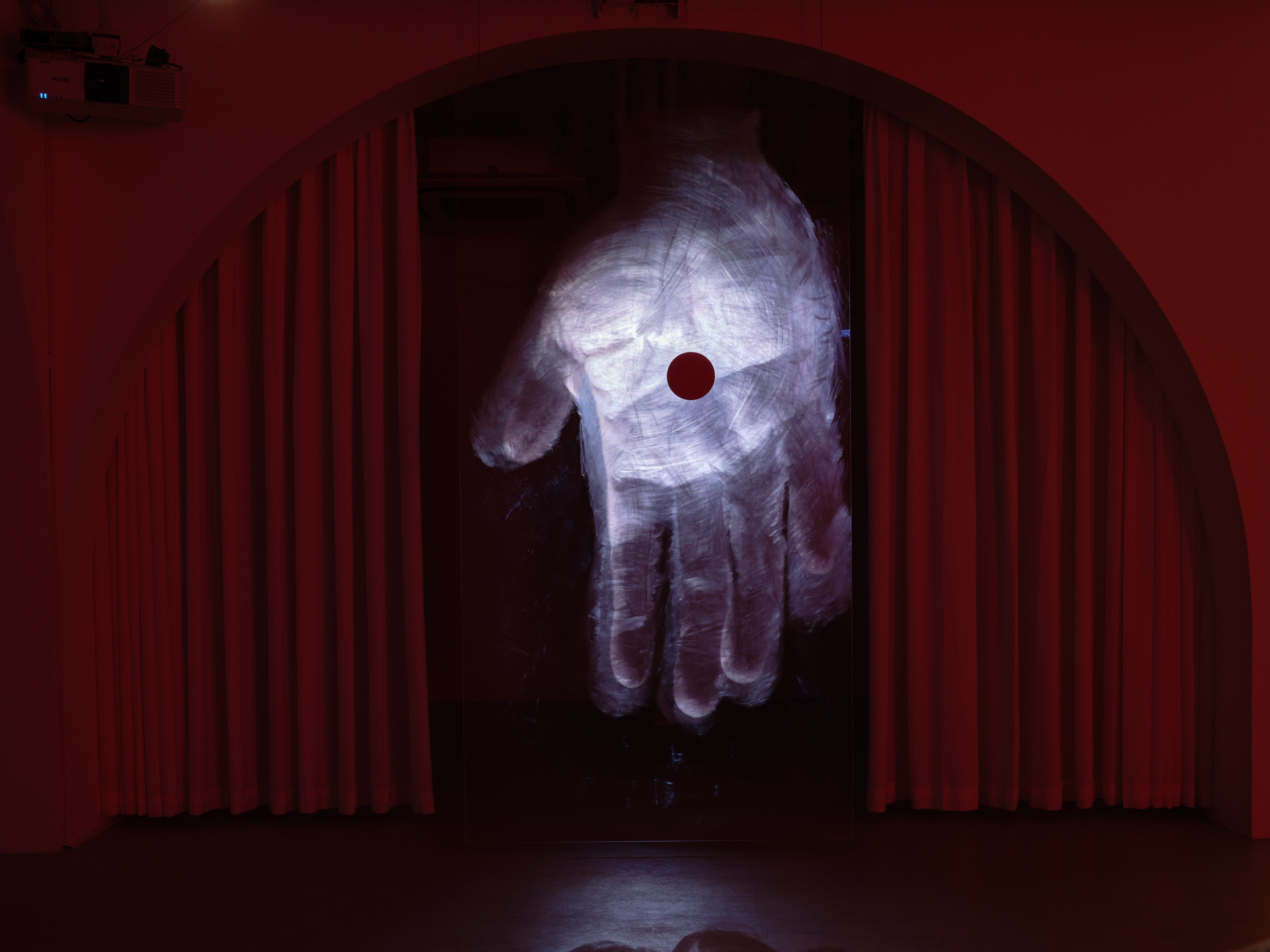
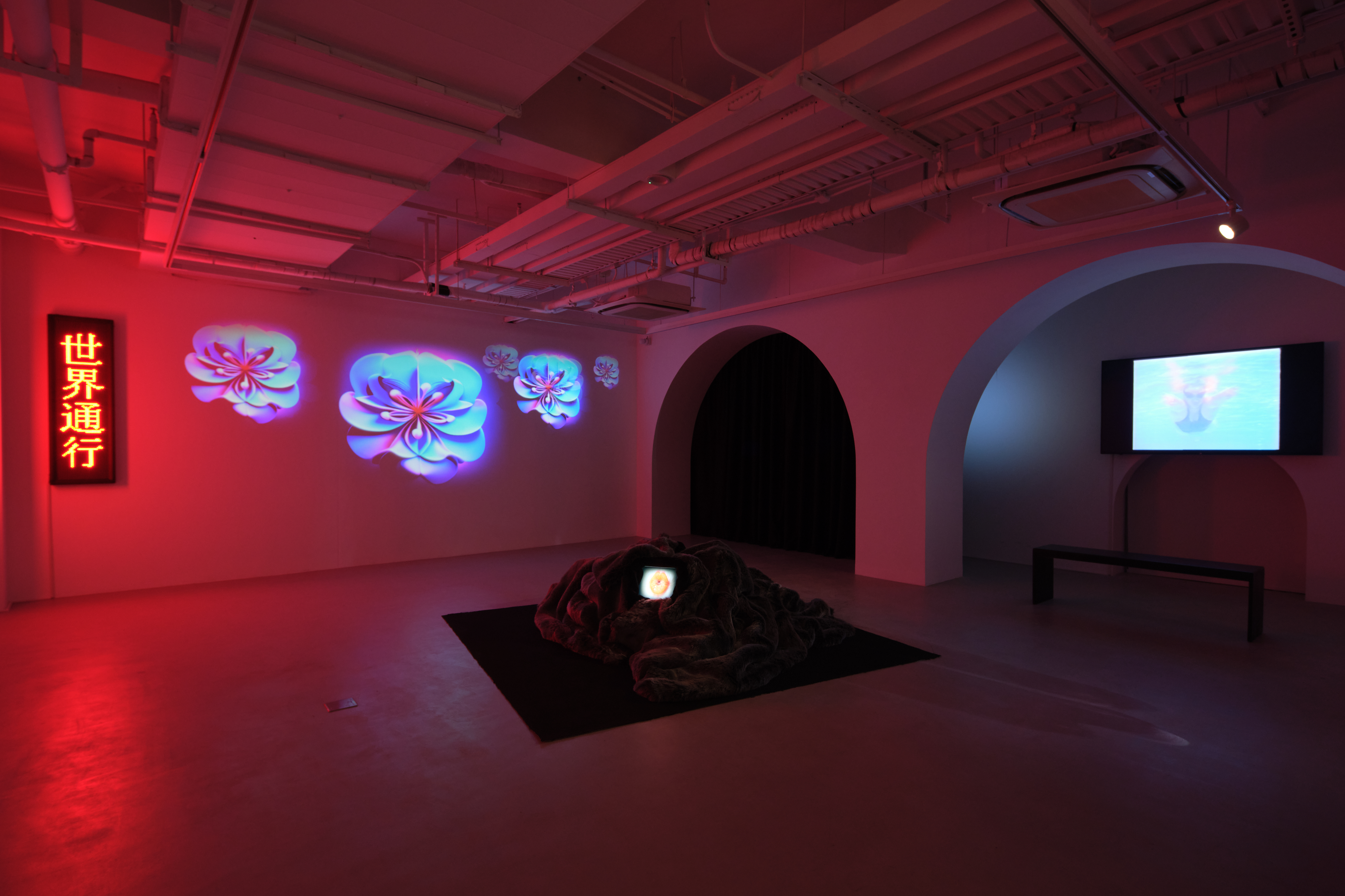
Installation view, ‘Inauspicious Symbol’, Ellen Pau, solo exhibition, Kiang Malingue, at totalab, Shanghai, 2023.
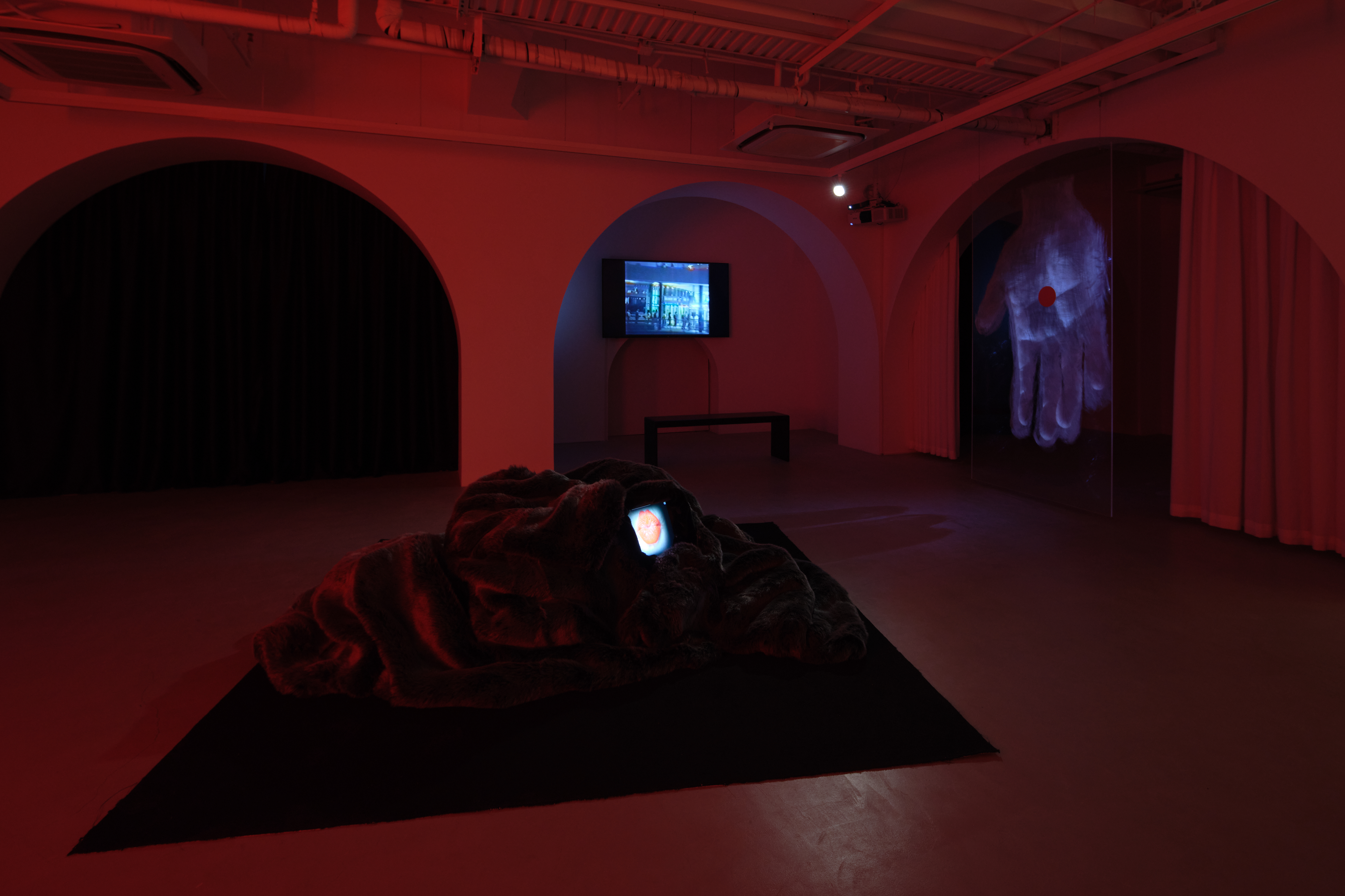
Installation view, ‘Inauspicious Symbol’, Ellen Pau, solo exhibition, Kiang Malingue, at totalab, Shanghai, 2023.
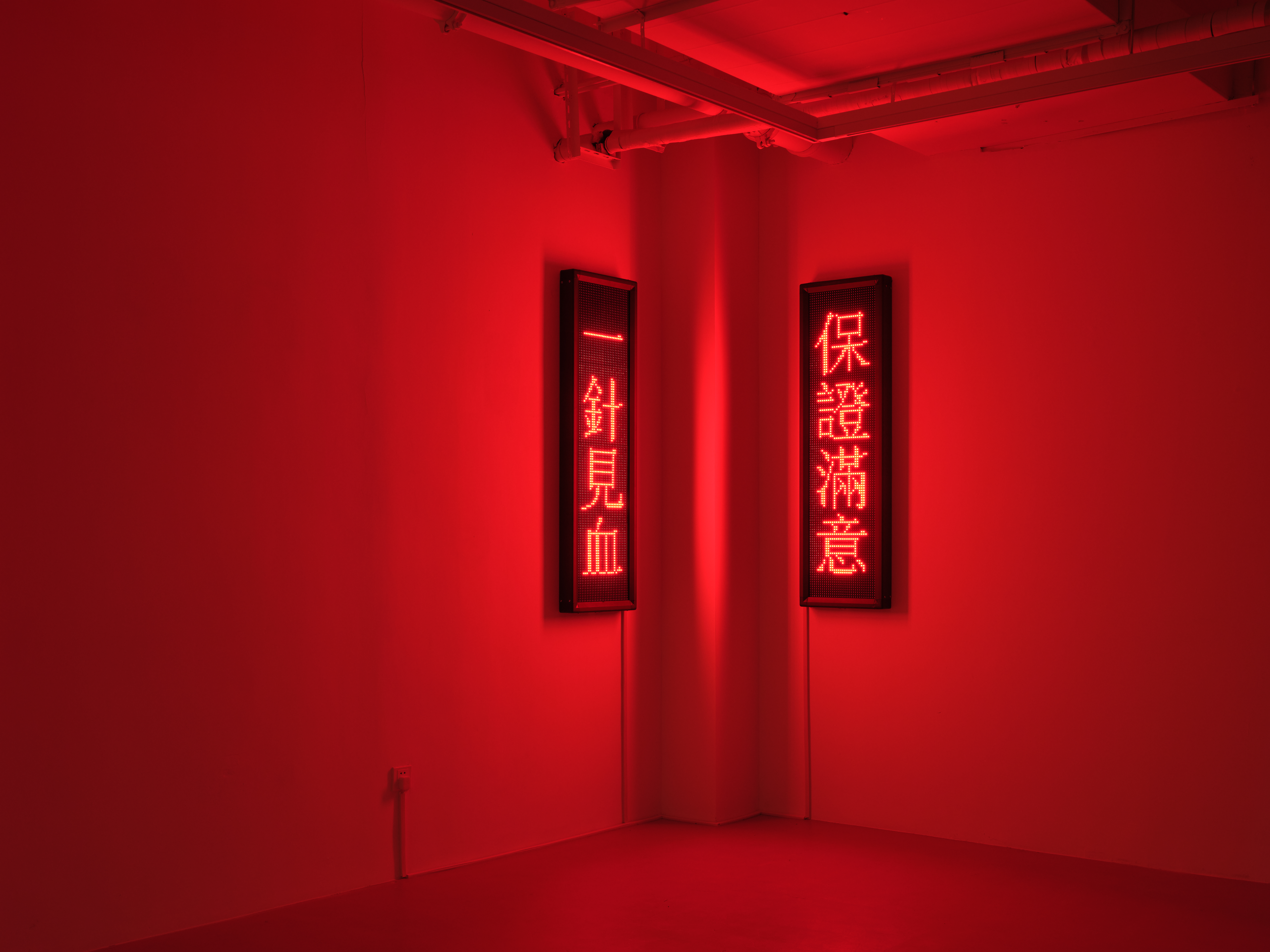
Installation view, ‘Inauspicious Symbol’, Ellen Pau, solo exhibition, Kiang Malingue, at totalab, Shanghai, 2023.
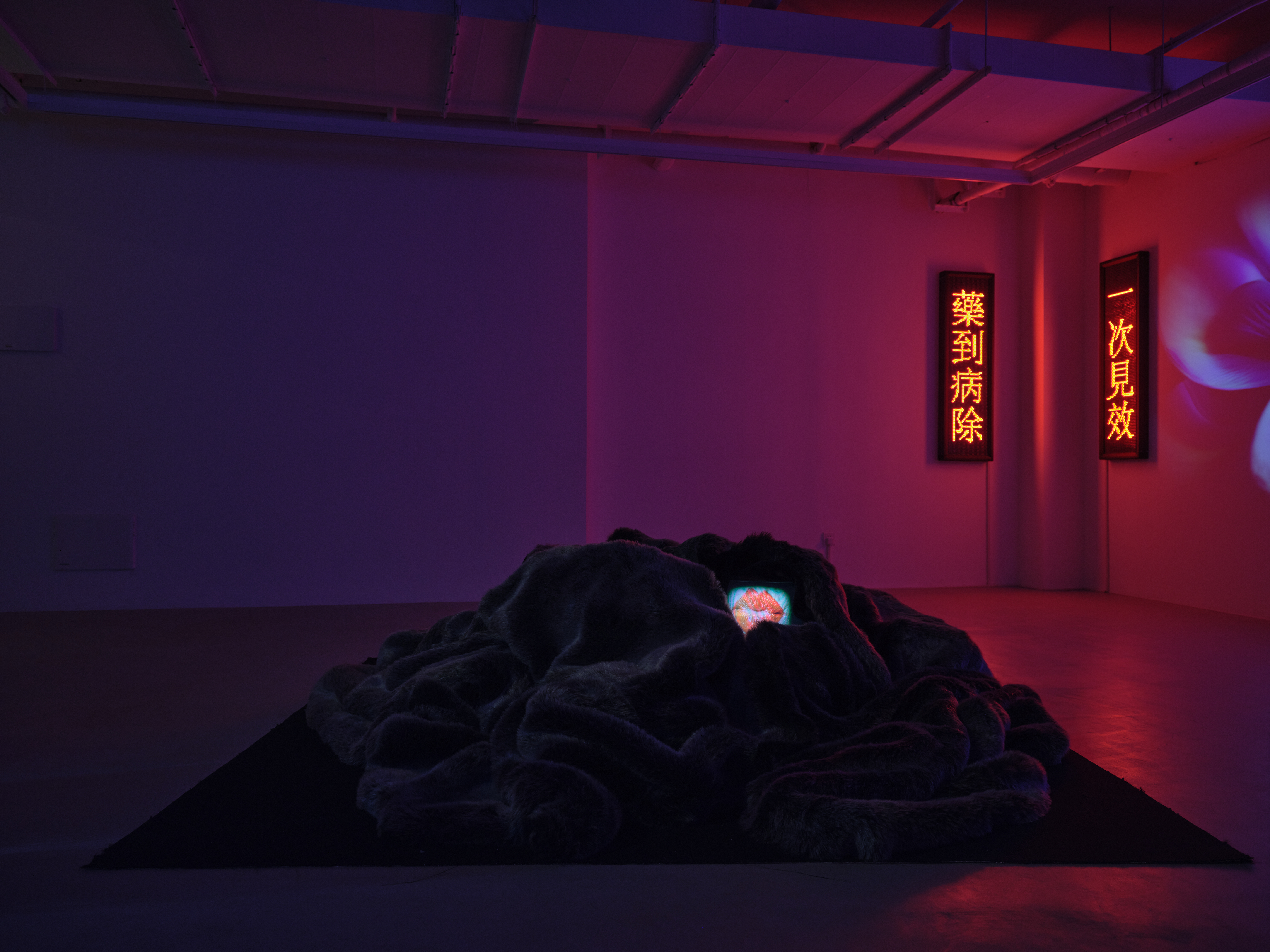
Installation view, ‘Inauspicious Symbol’, Ellen Pau, solo exhibition, Kiang Malingue, at totalab, Shanghai, 2023.
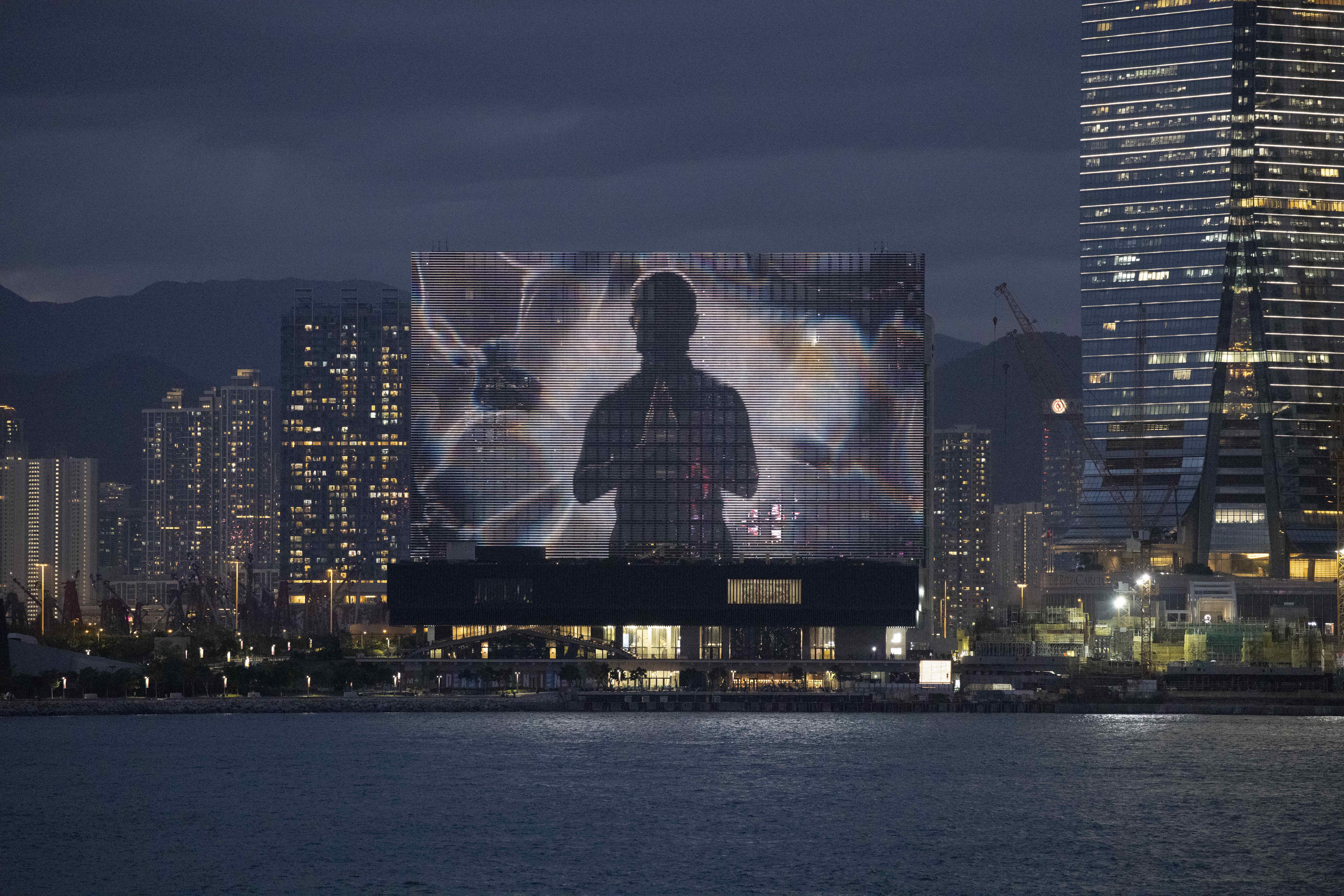
Screening of The Shape of Light on the M+ Facade, 2022.
Courtesy of Ellen Pau and M+, Hong Kong.
Photo: Lok Cheng. M+, Hong Kong.
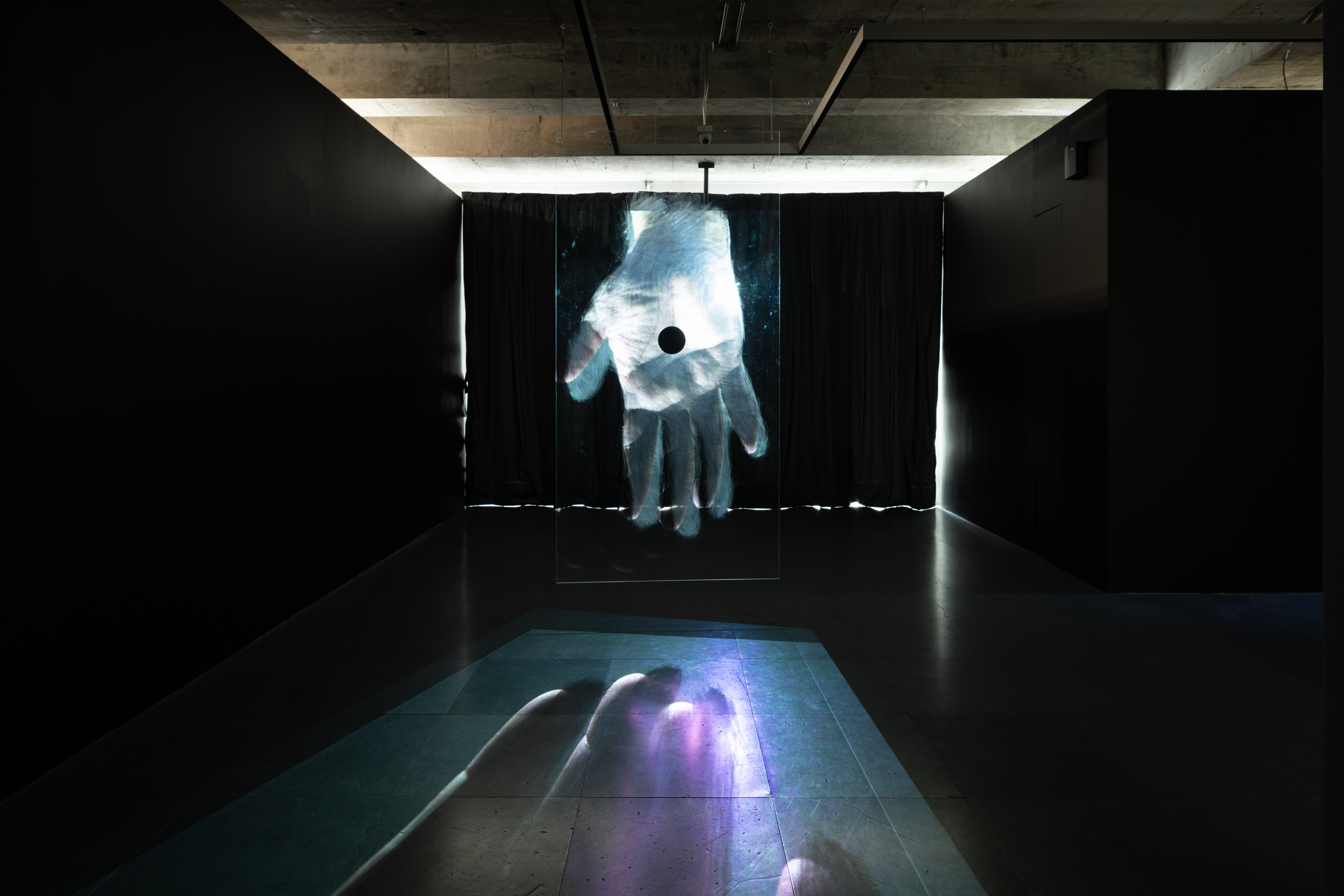
‘The Great Movement’ at Edouard Malingue Gallery, Hong Kong
2019
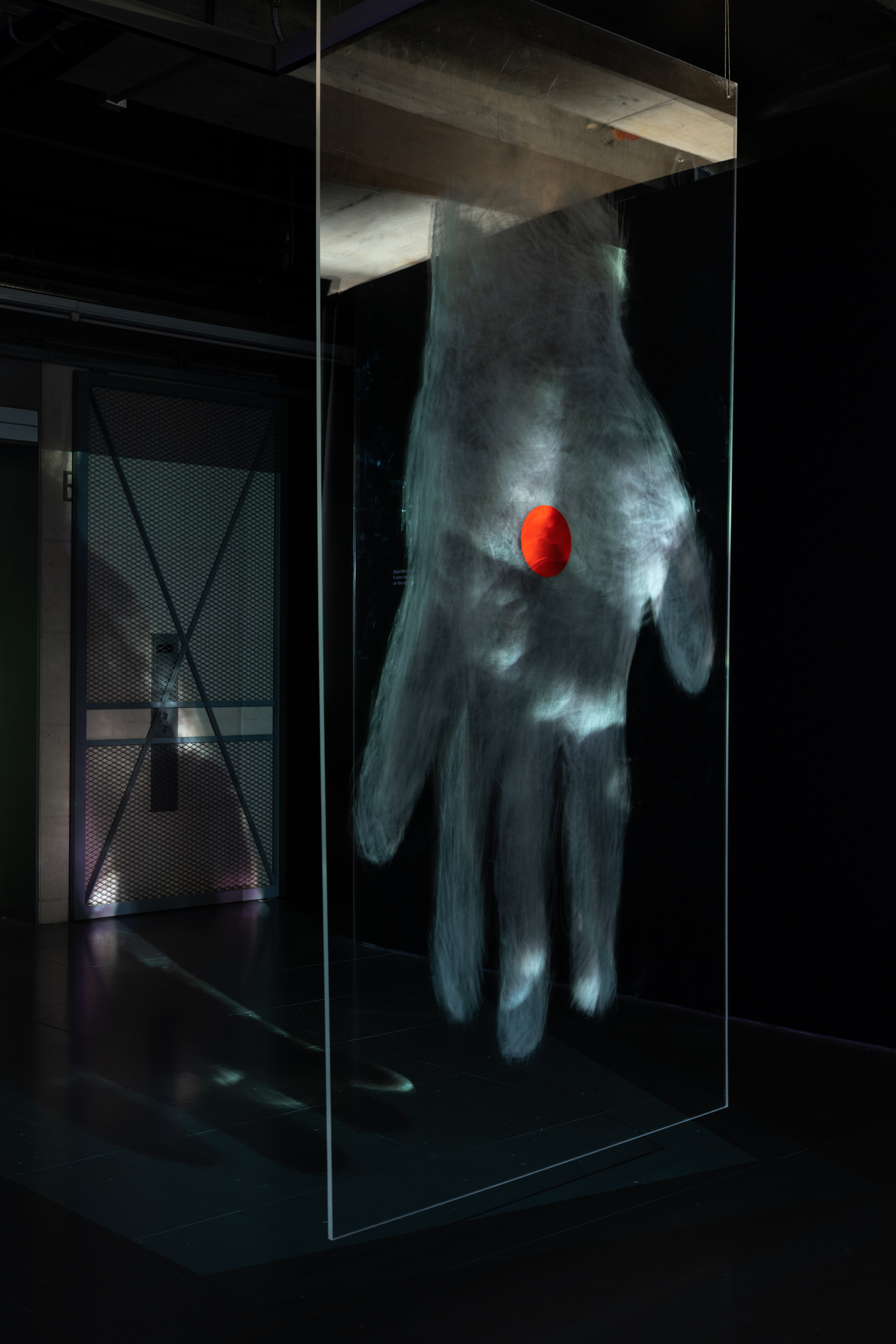
‘The Great Movement’ at Edouard Malingue Gallery, Hong Kong
2019
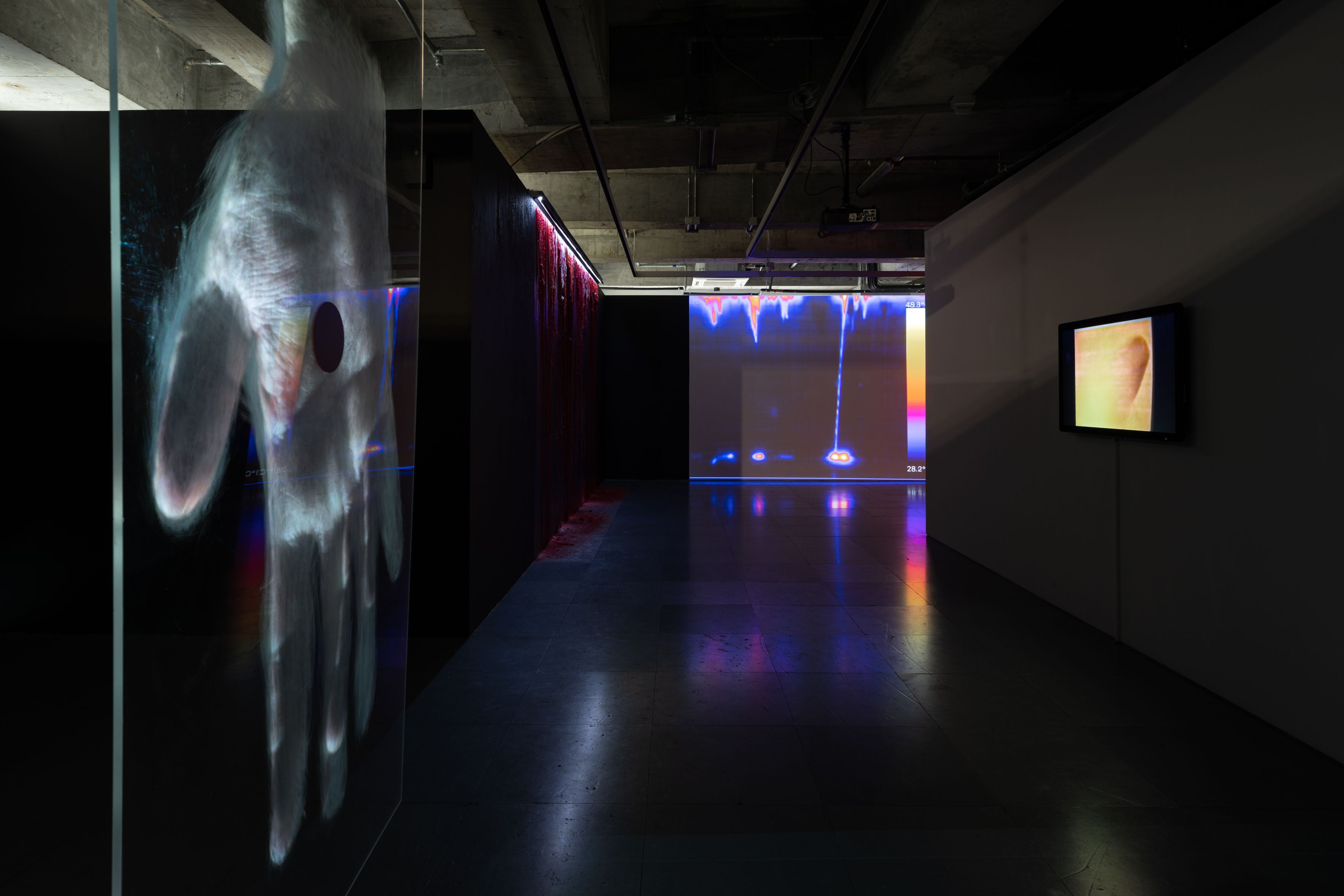
‘The Great Movement’ at Edouard Malingue Gallery, Hong Kong
2019
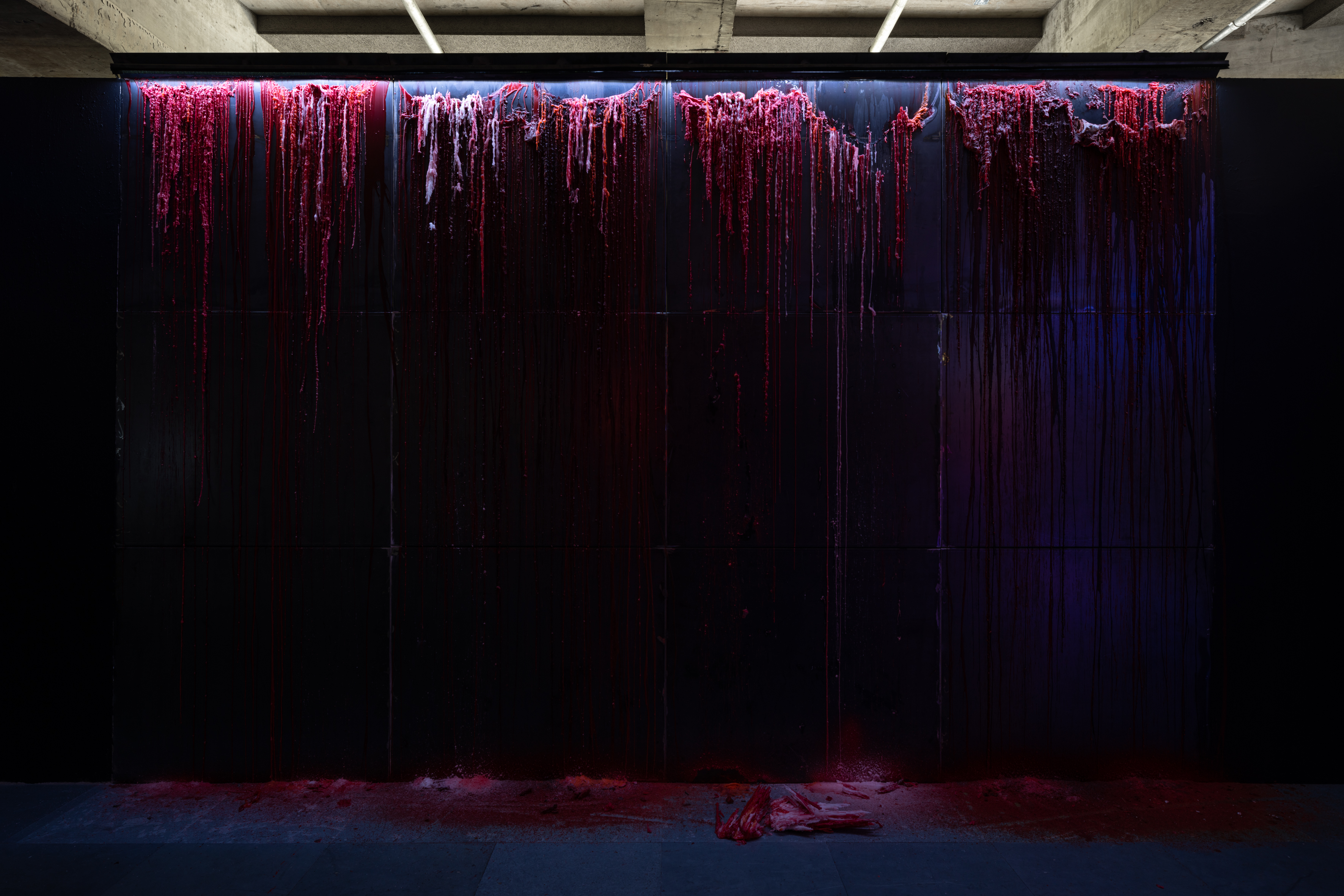
Metal, paraffin wax, heater, thermal imaging camera, projection, dimensions variable
‘The Great Movement’ at Edouard Malingue Gallery, Hong Kong
2019
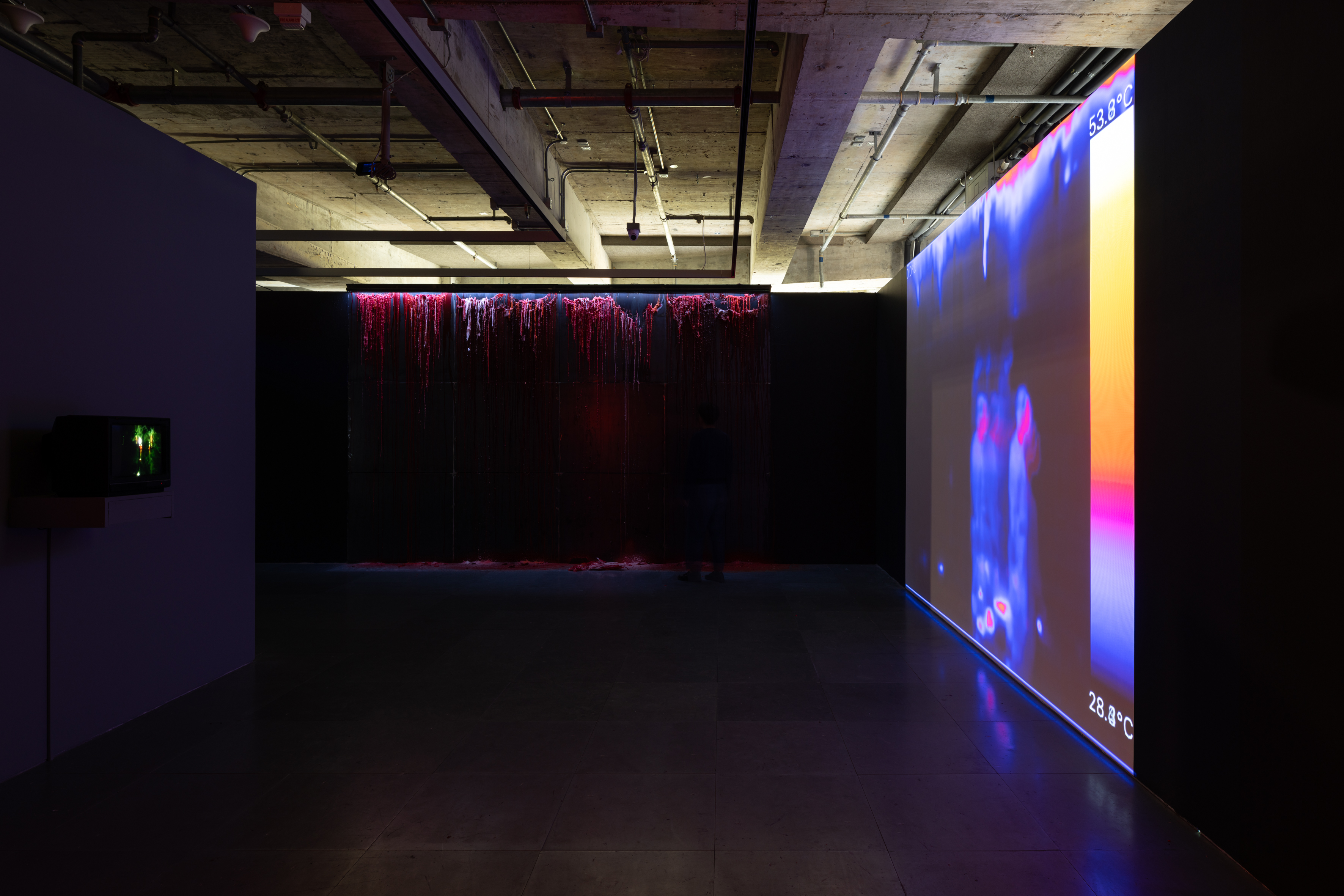
‘The Great Movement’ at Edouard Malingue Gallery, Hong Kong
2019
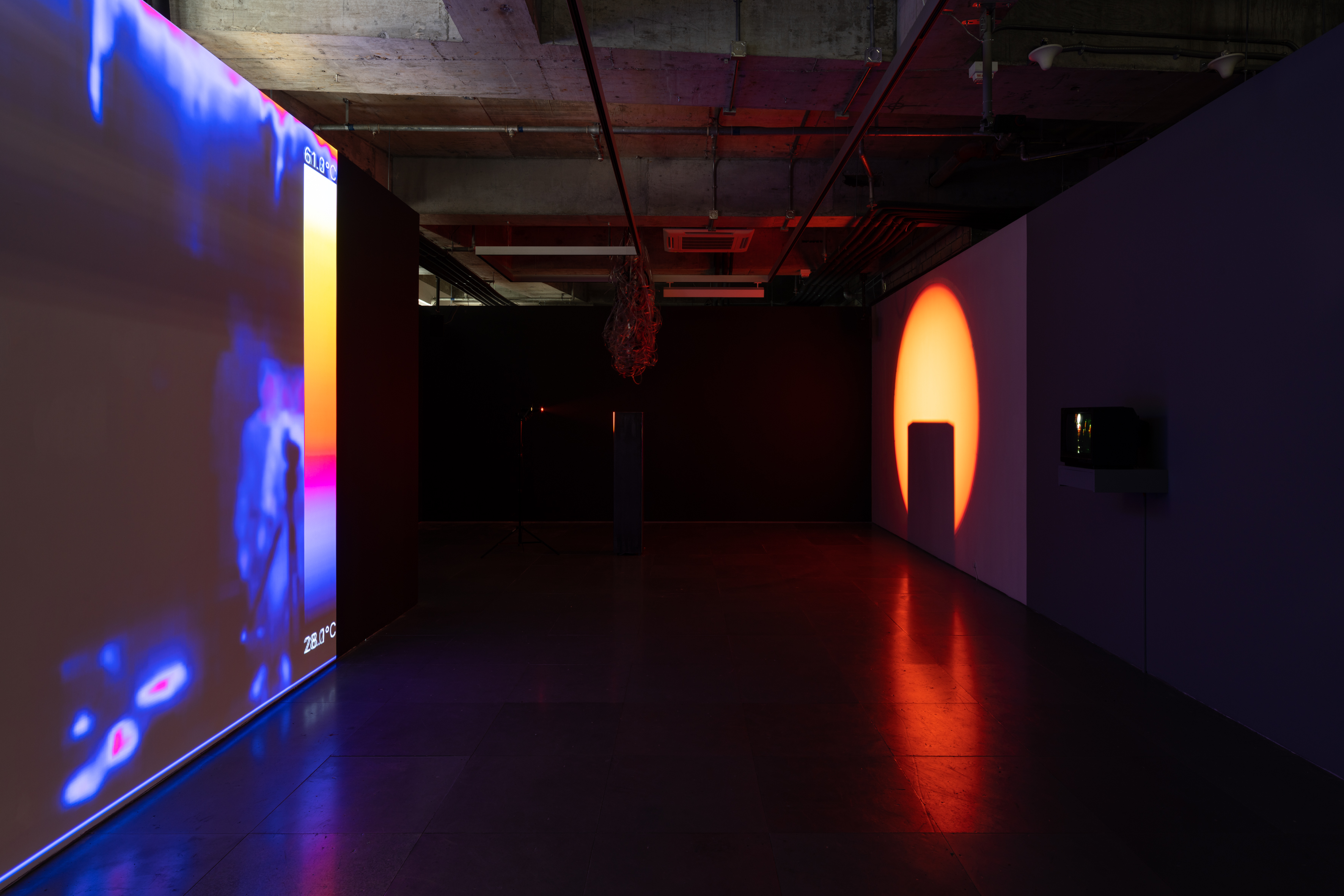
‘The Great Movement’ at Edouard Malingue Gallery, Hong Kong
2019
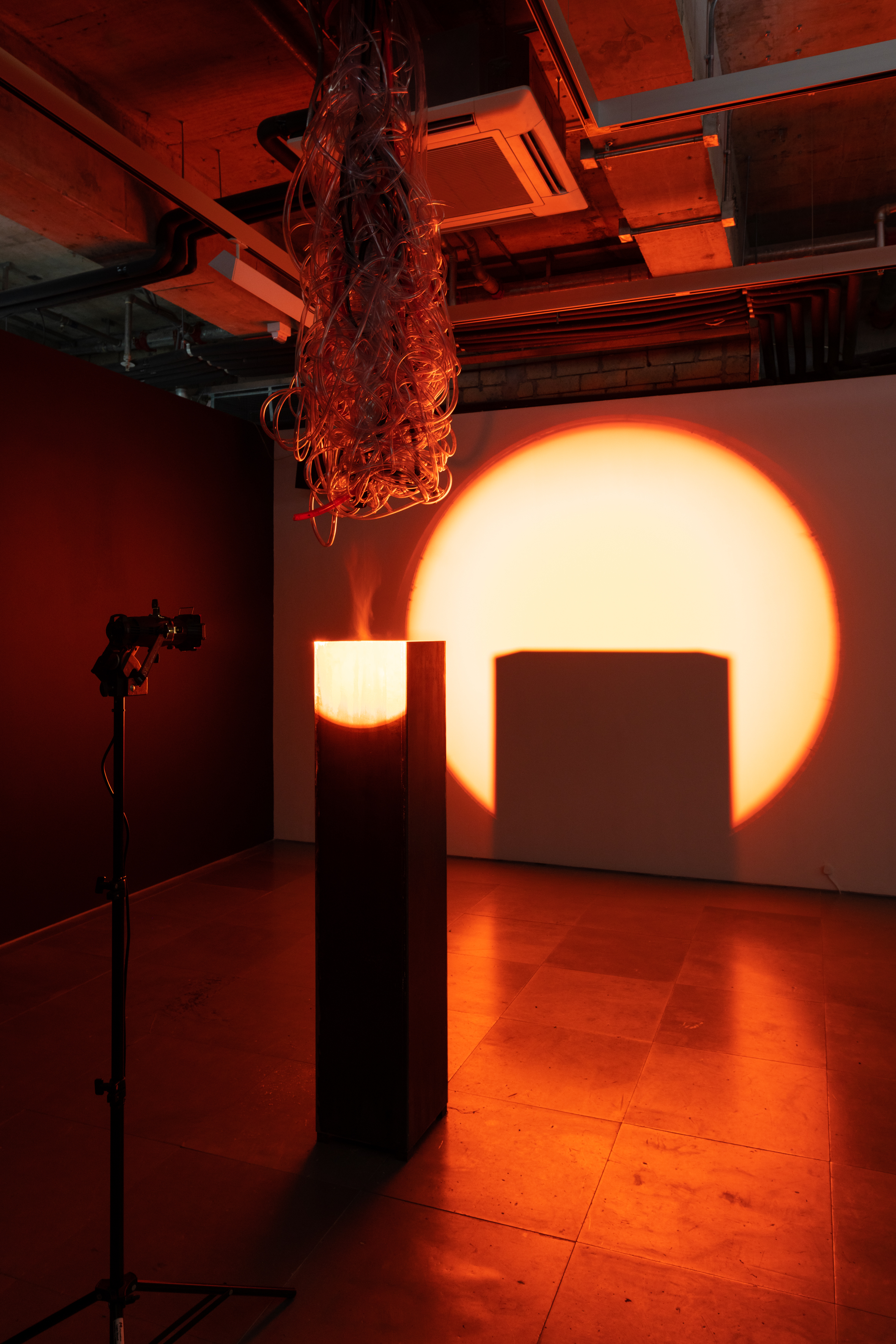
Plastic drip device, hot plates, sound processing system, dimensions variable
‘The Great Movement’ at Edouard Malingue Gallery, Hong Kong
2019
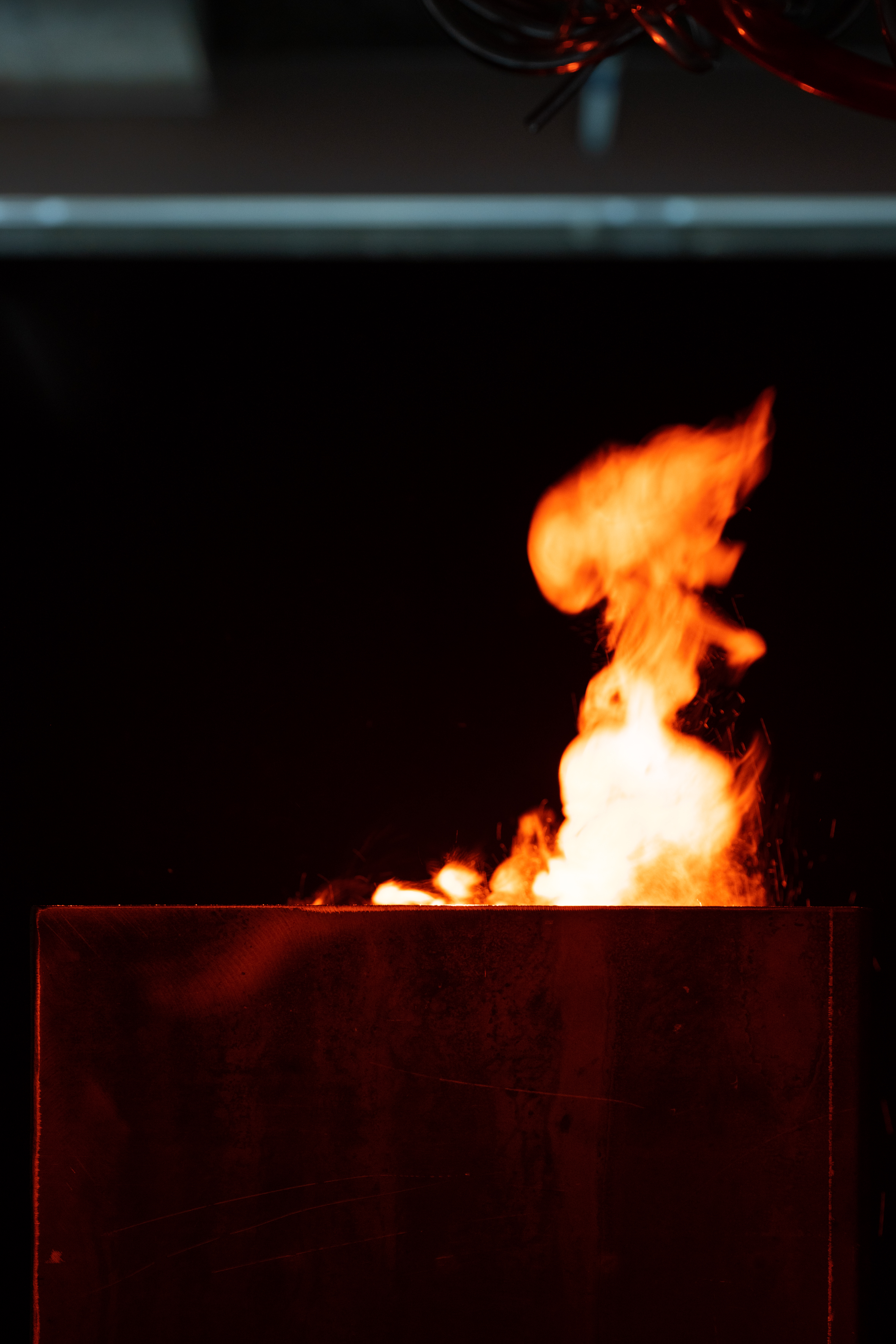
Plastic drip device, hot plates, sound processing system, dimensions variable
‘The Great Movement’ at Edouard Malingue Gallery, Hong Kong
2019
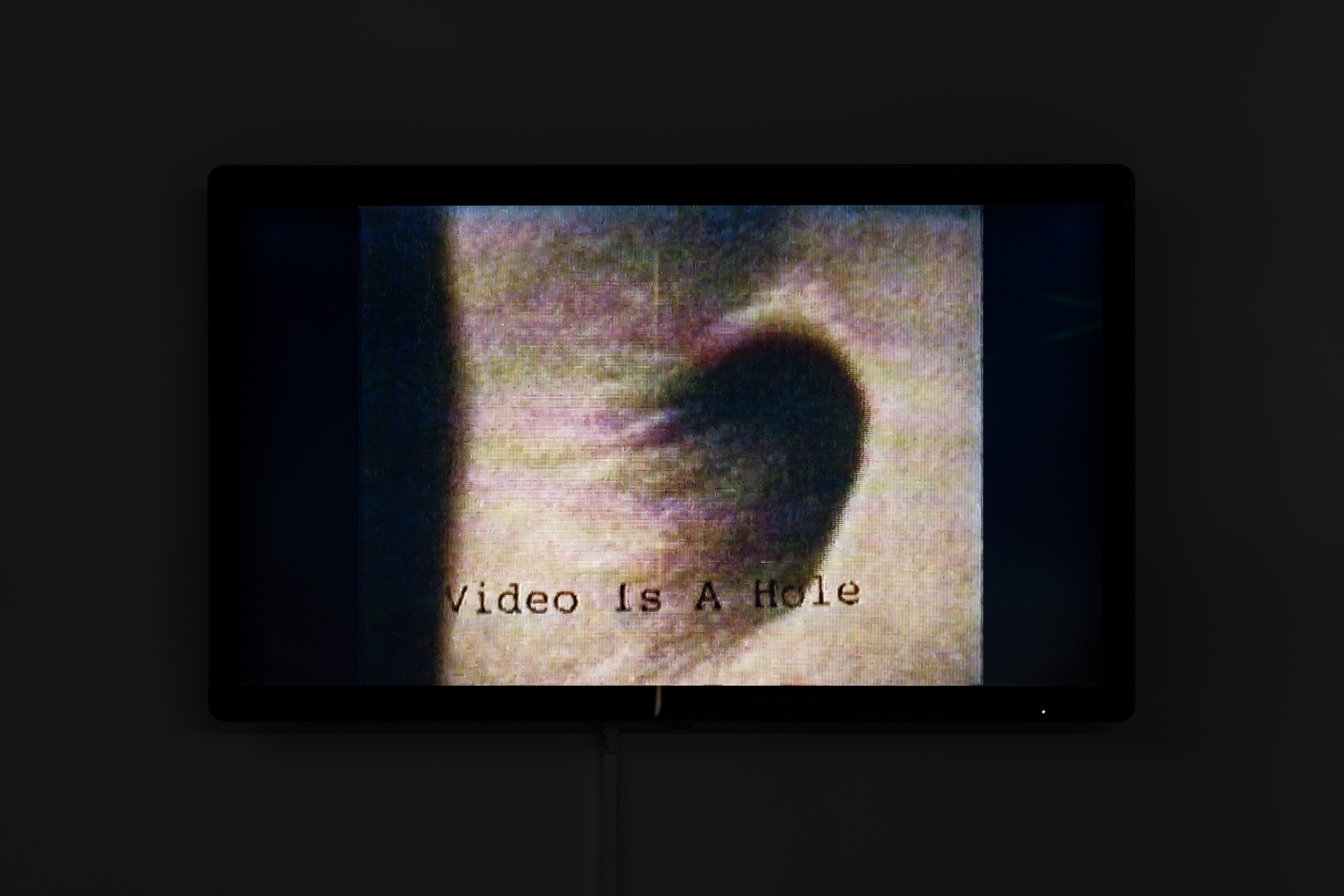
Single channel video, 4:3, colour, with sound, 5 min
‘The Great Movement’ at Edouard Malingue Gallery, Hong Kong
2019
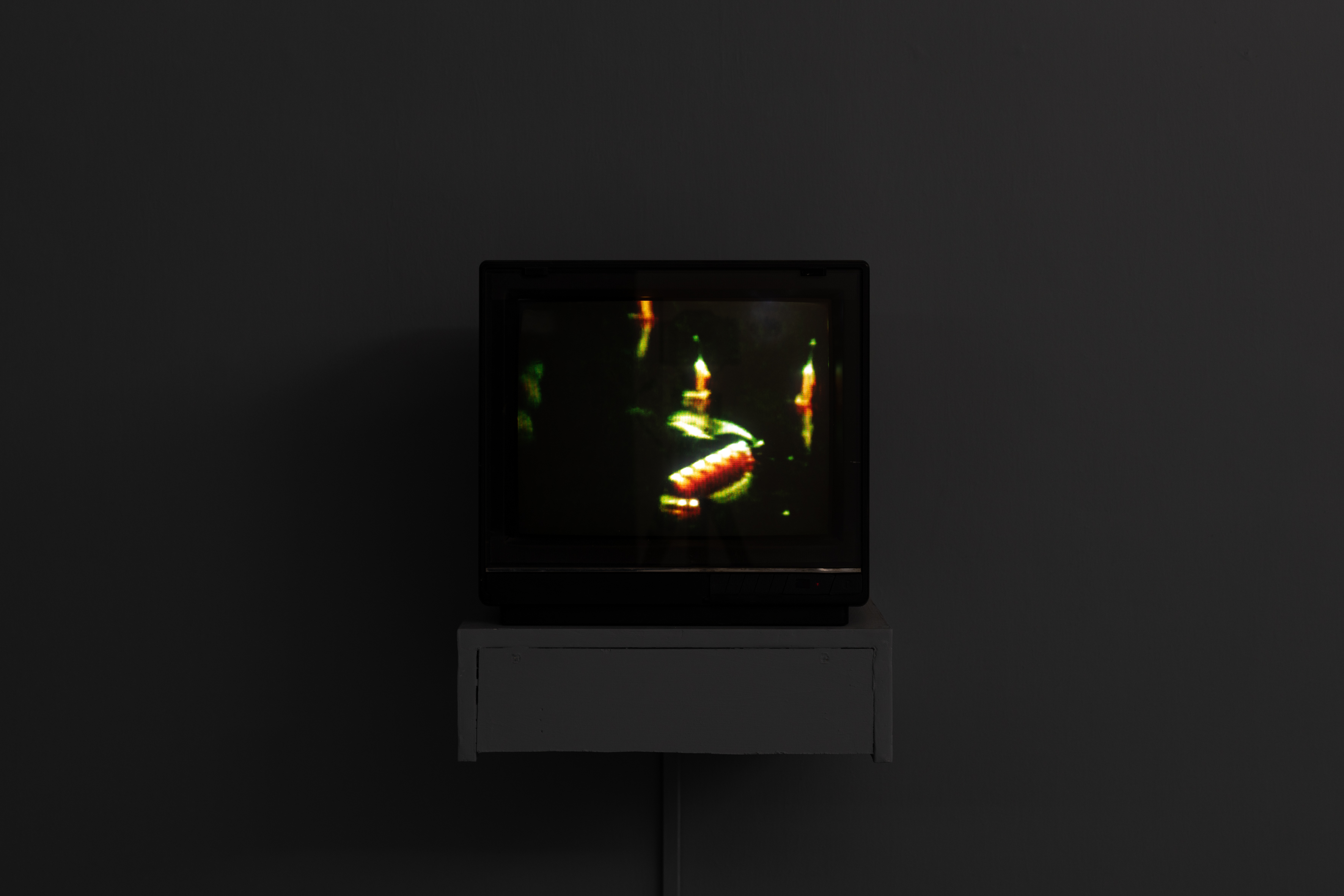
Single channel video, 4:3, colour, with sound, 3 min 12 sec
‘The Great Movement’ at Edouard Malingue Gallery, Hong Kong
2019
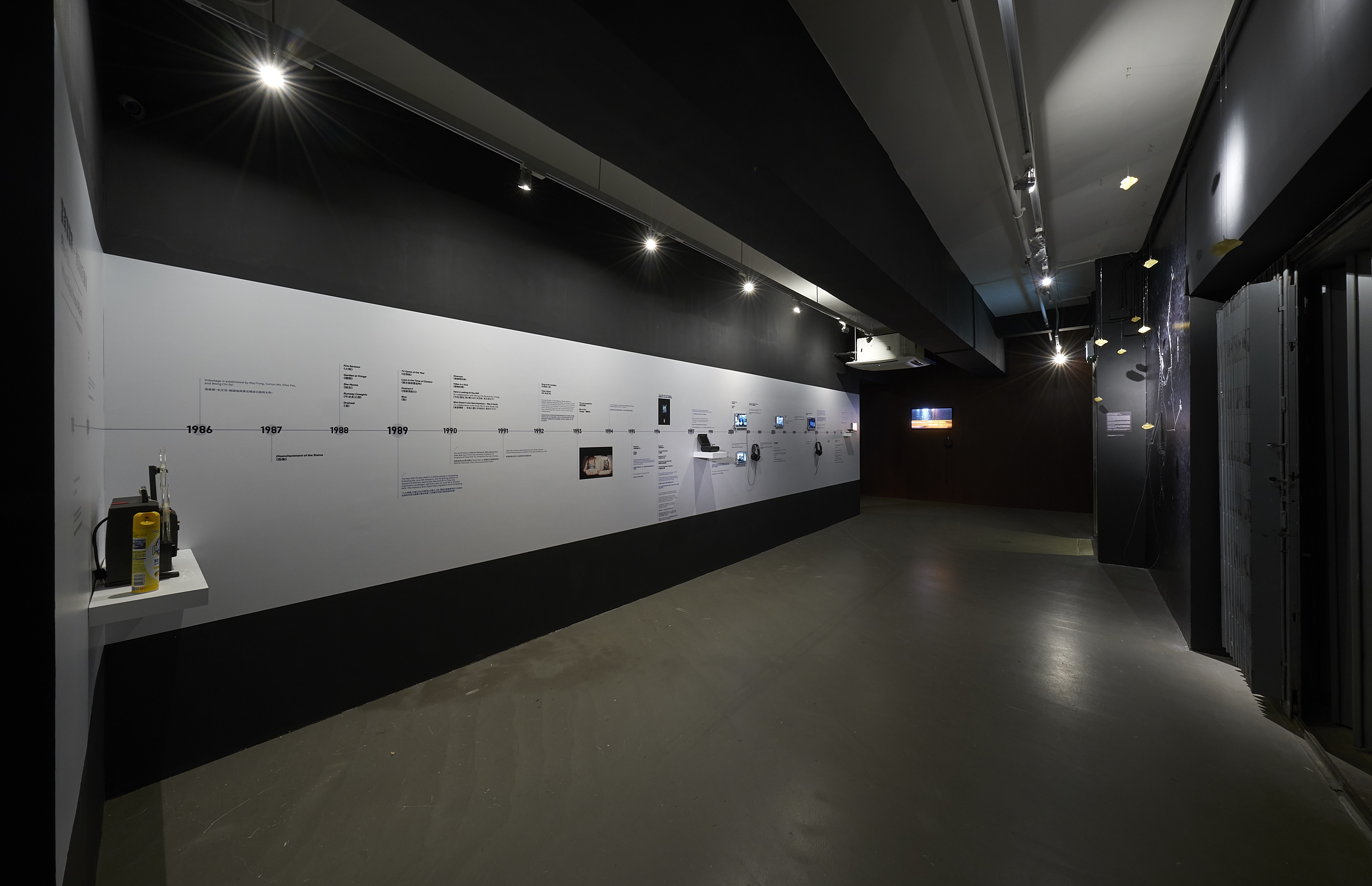
‘Ellen Pau: What About Home Affairs? – A Retrospective’ at Para Site, Hong Kong
2018
Image courtesy of the artist and Para Site
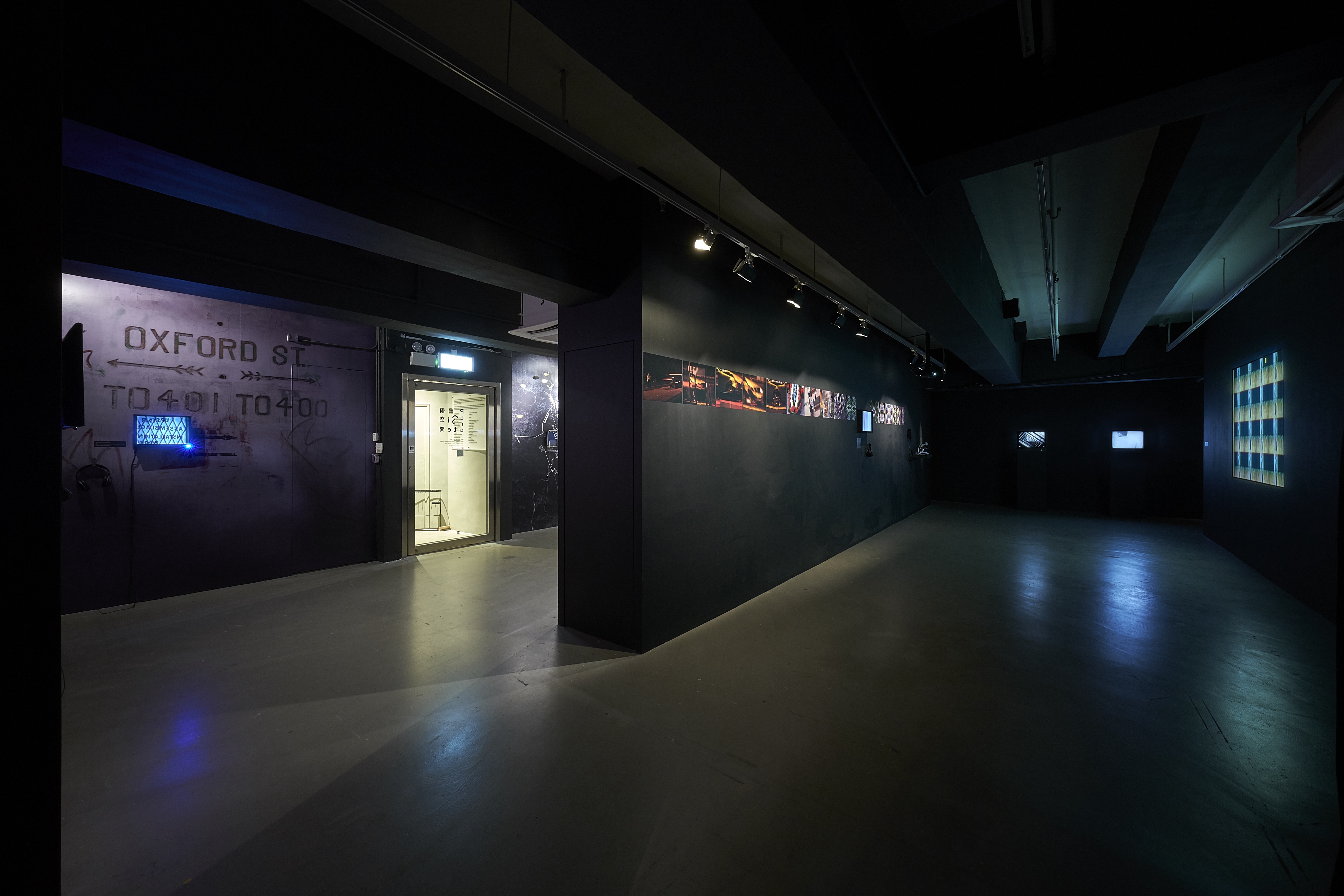
‘Ellen Pau: What About Home Affairs? – A Retrospective’ at Para Site, Hong Kong
2018
Image courtesy of the artist and Para Site
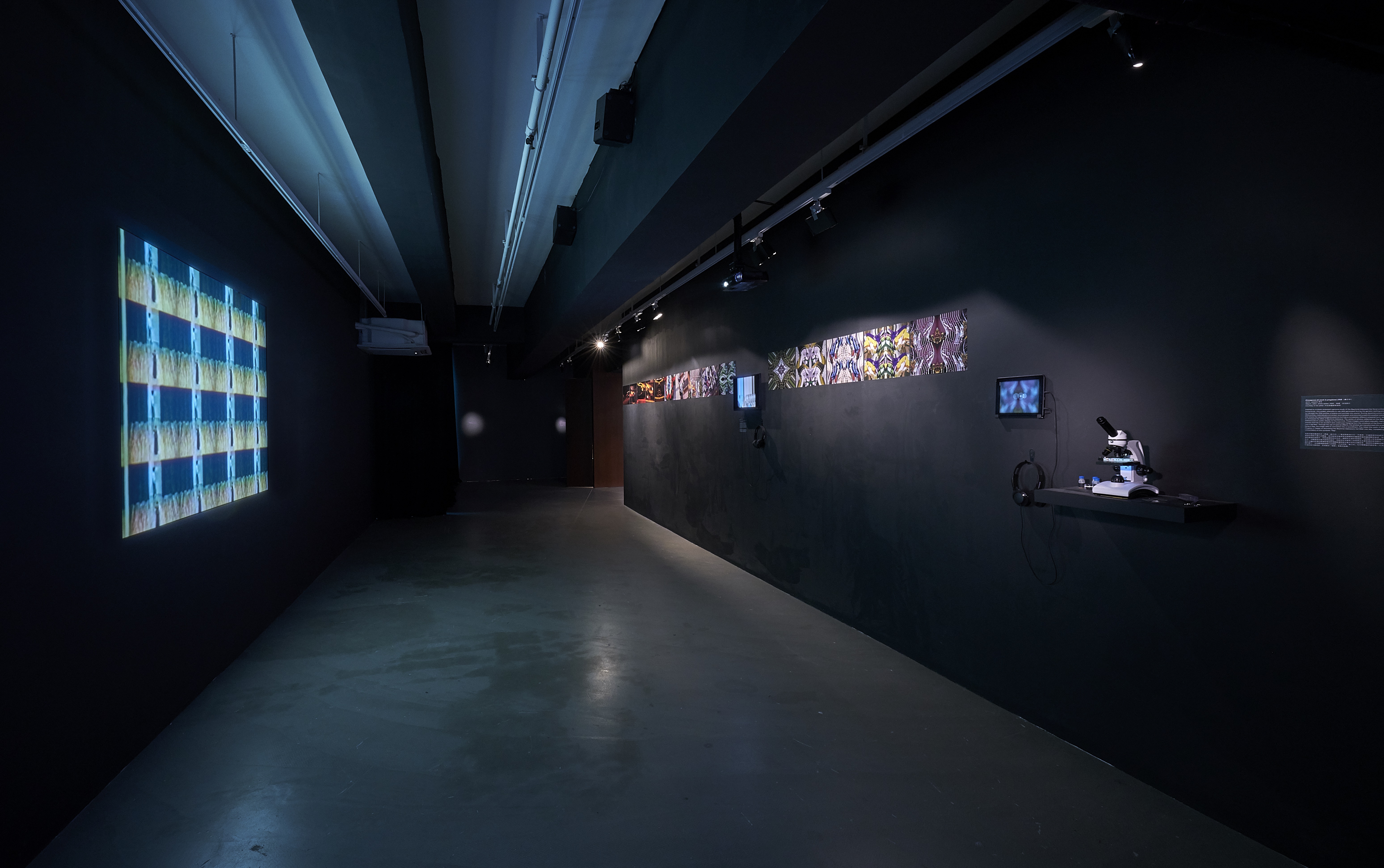
‘Ellen Pau: What About Home Affairs? – A Retrospective’ at Para Site, Hong Kong
2018
Image courtesy of the artist and Para Site
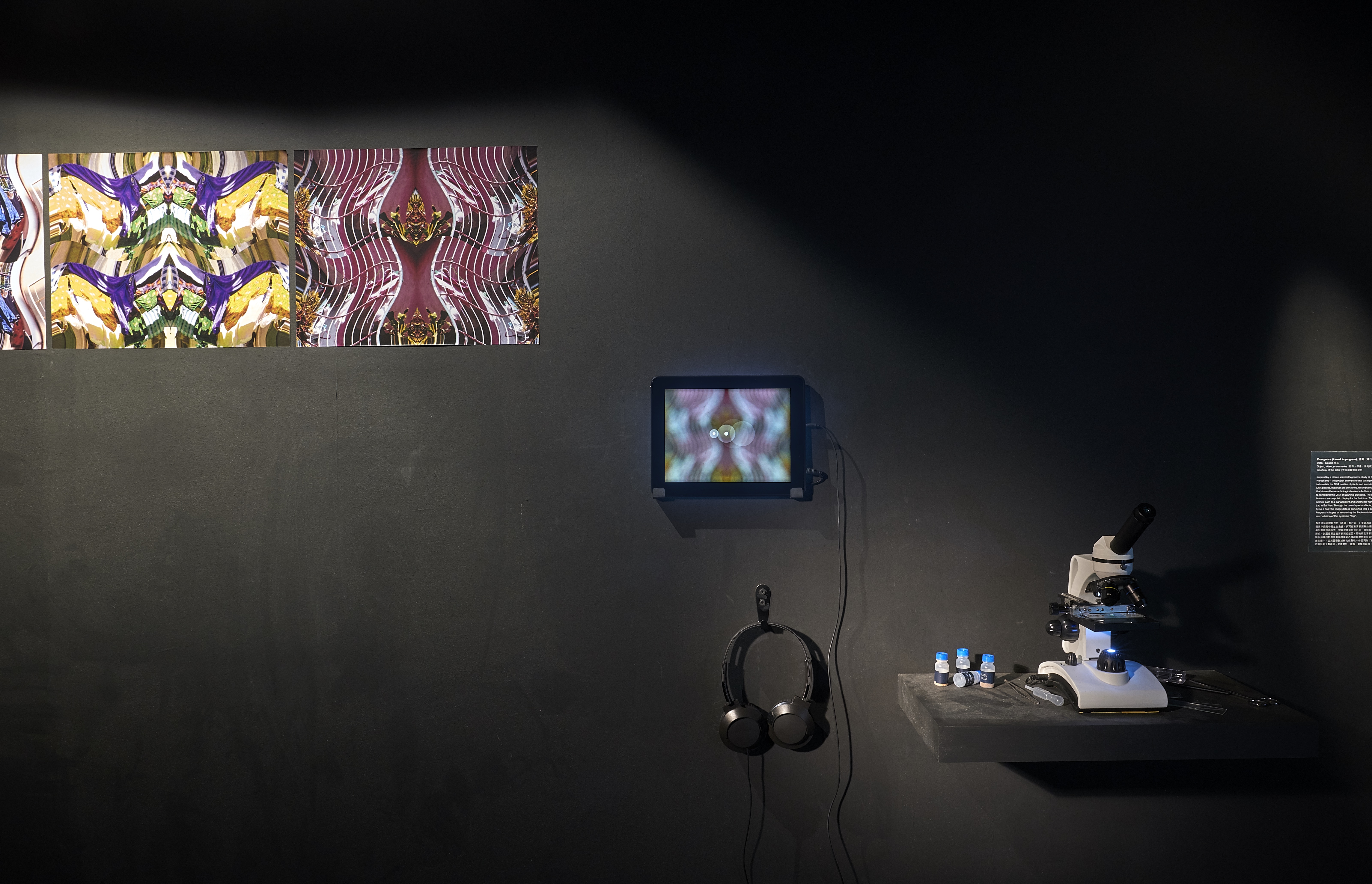
‘Ellen Pau: What About Home Affairs? – A Retrospective’ at Para Site, Hong Kong
2018
Image courtesy of the artist and Para Site
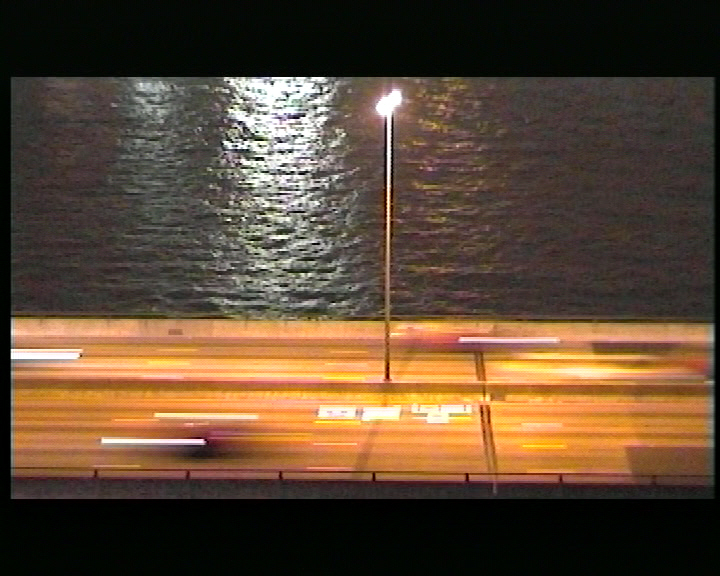
DV, video installation, colour and sound, 1999 (12 min); 2000 (8 min)
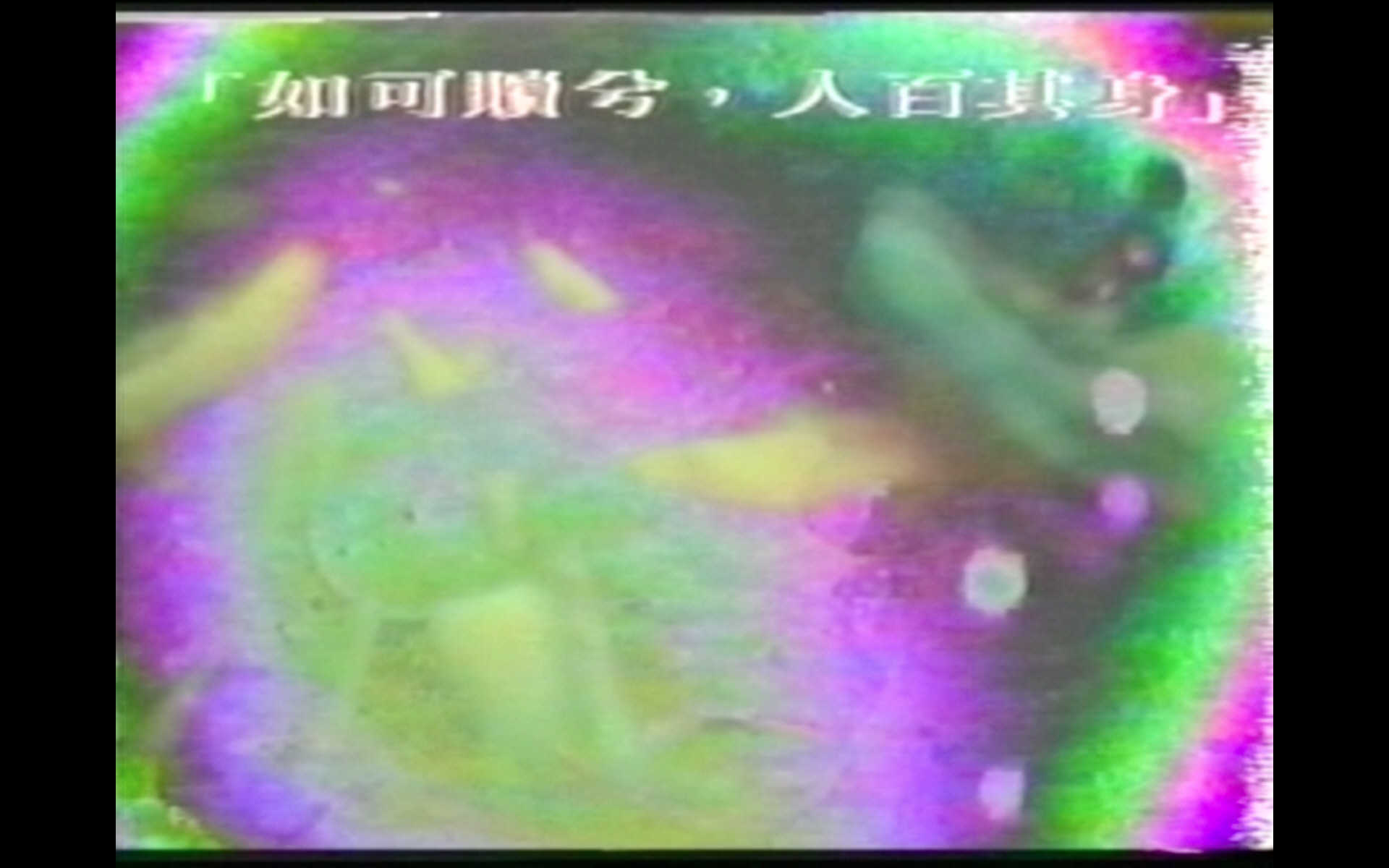
Hi-8, single-channel, colour and sound, 6 min 50 sec
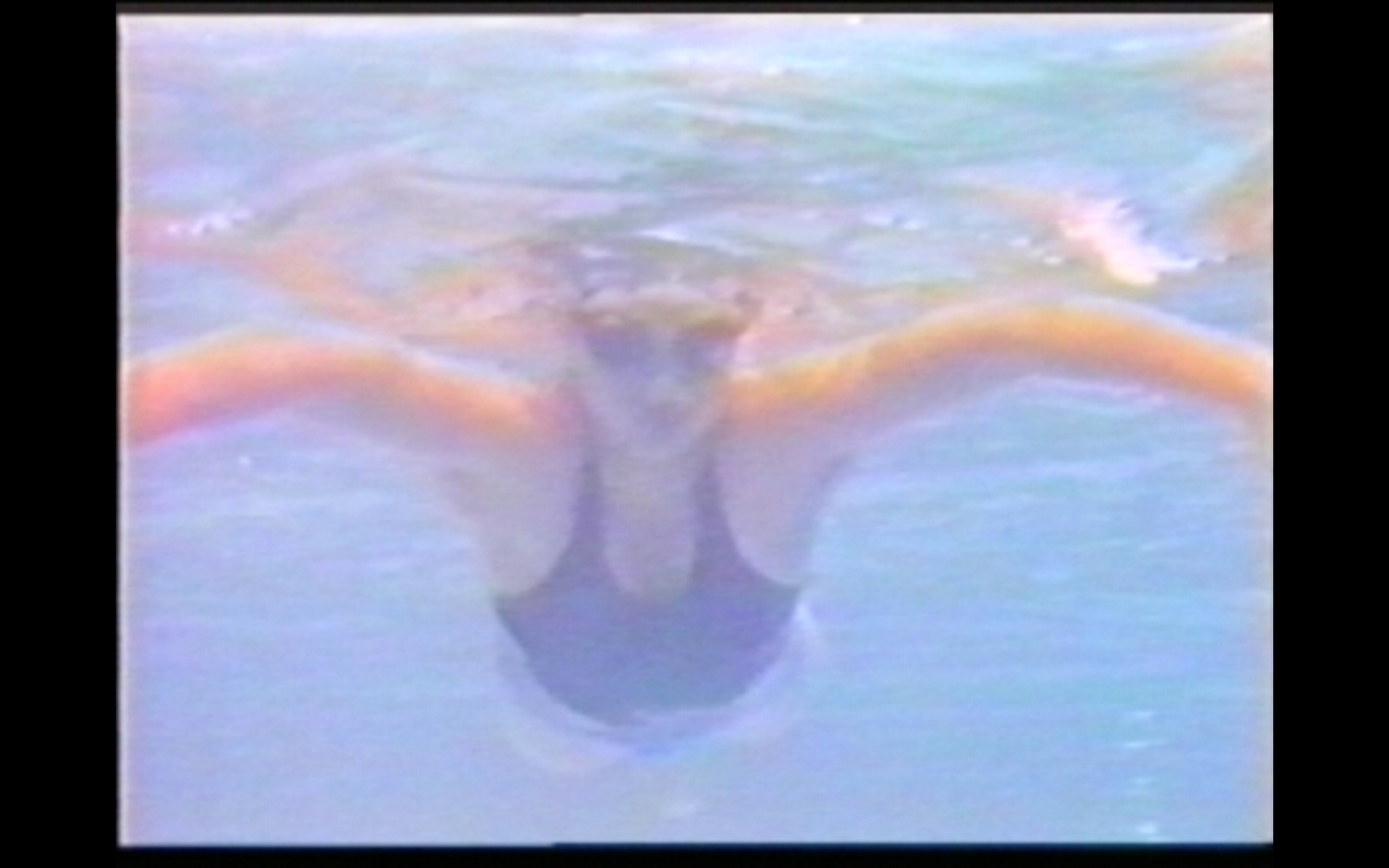
VHS, single-channel, colour and sound, 5 min 30 sec
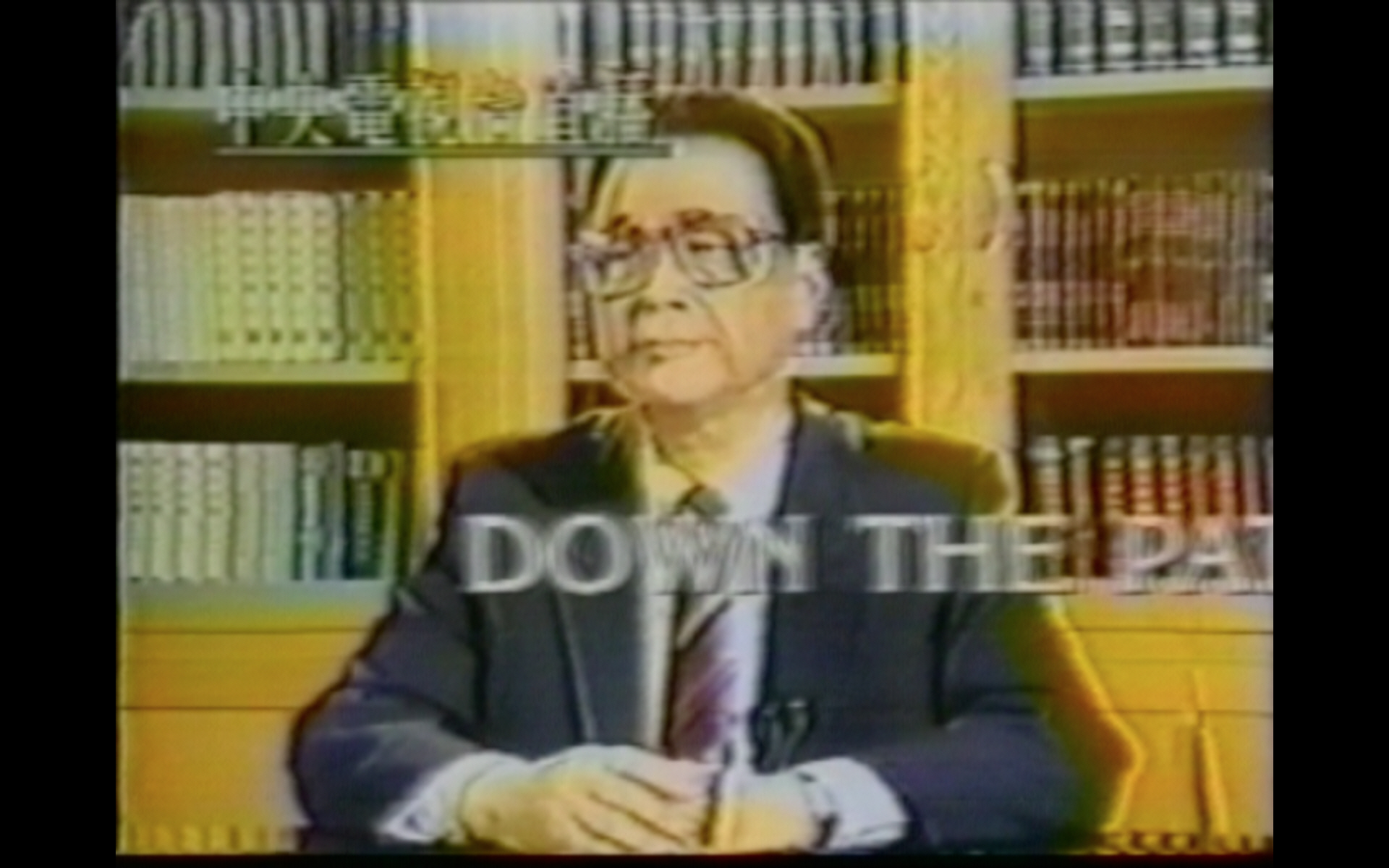
VHS, single-channel, colour and sound, 5 min
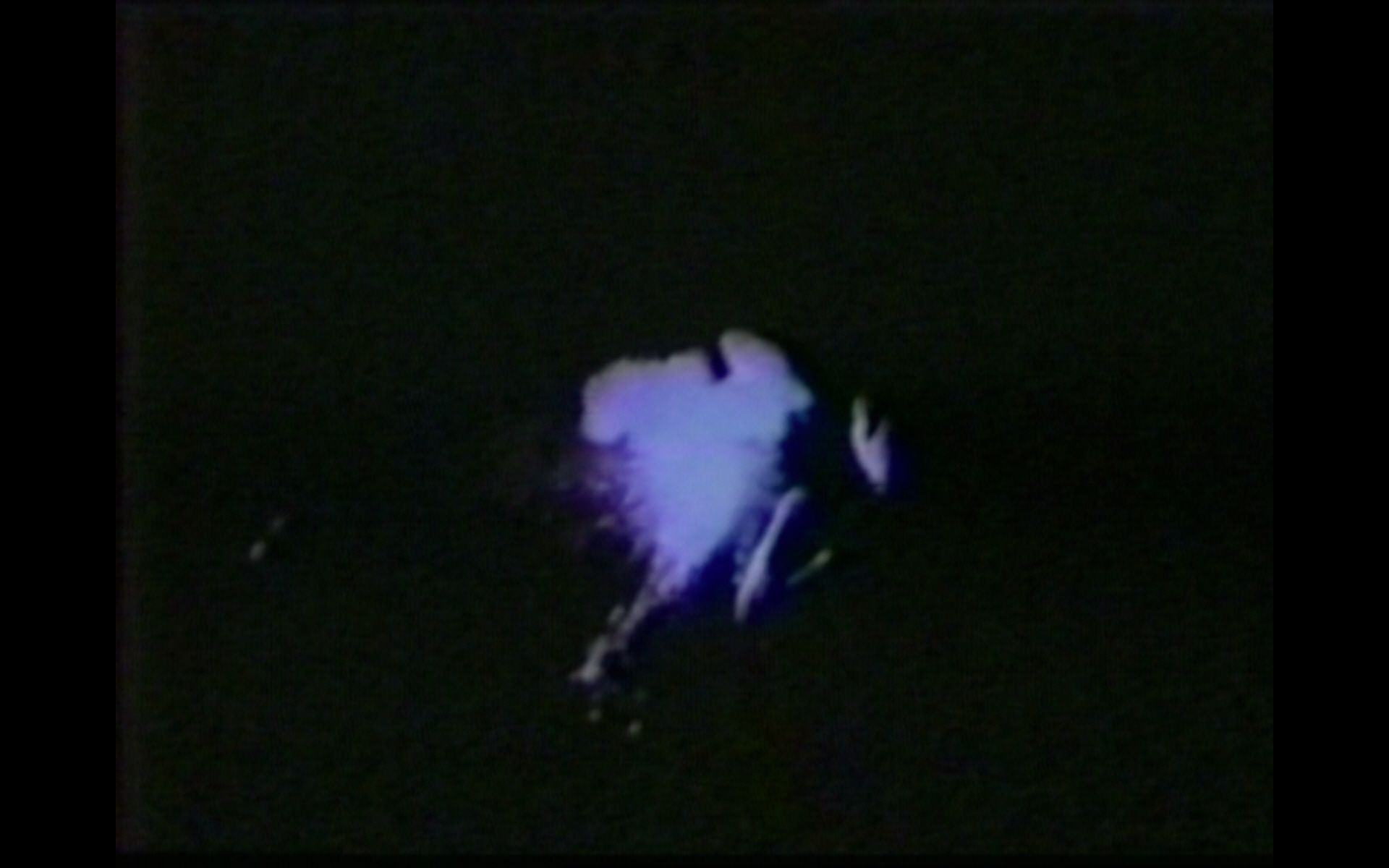
Video 8, single-channel, colour and sound, 8 min
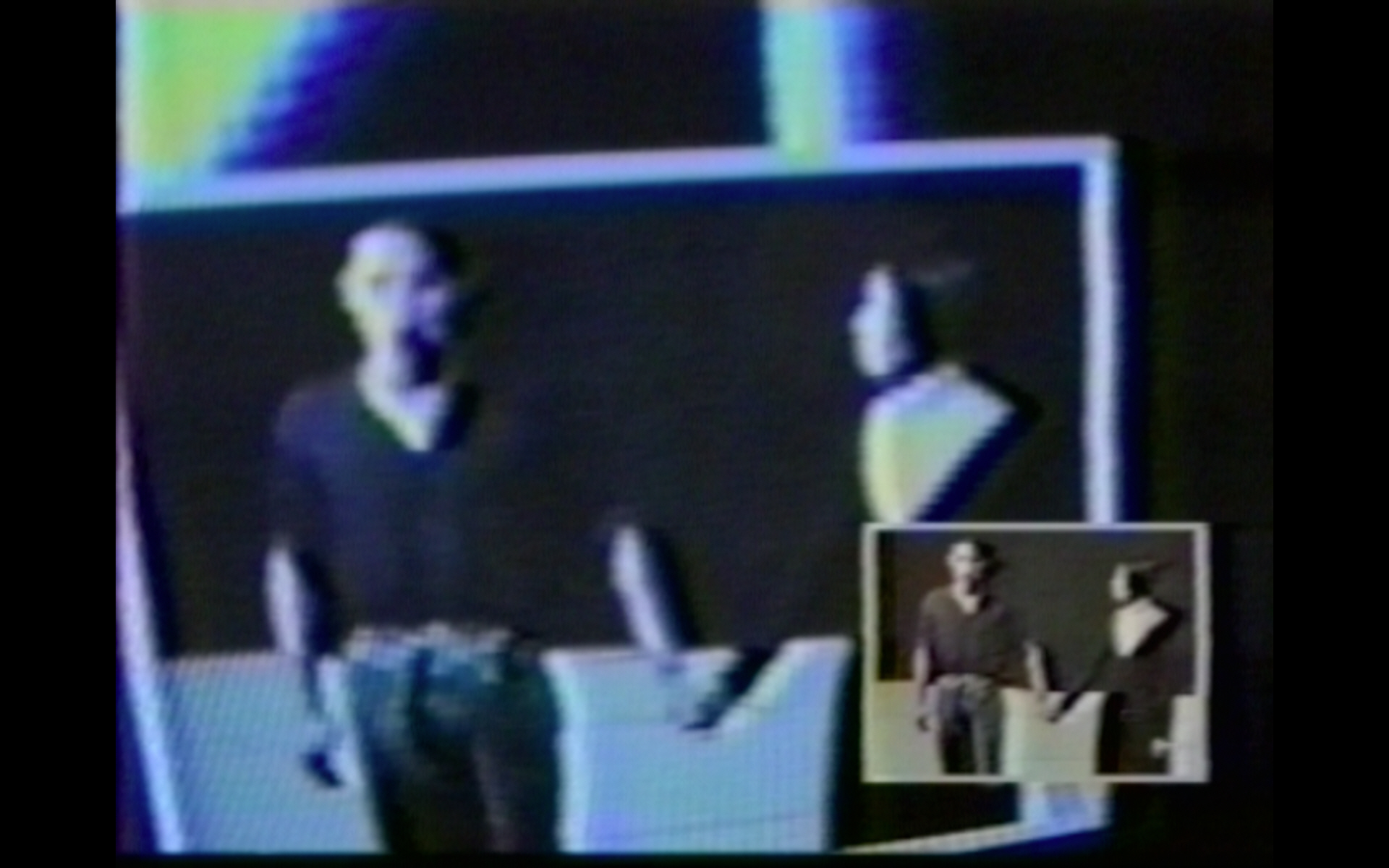
Video 8, single-channel, colour and sound, 4 min 16 sec
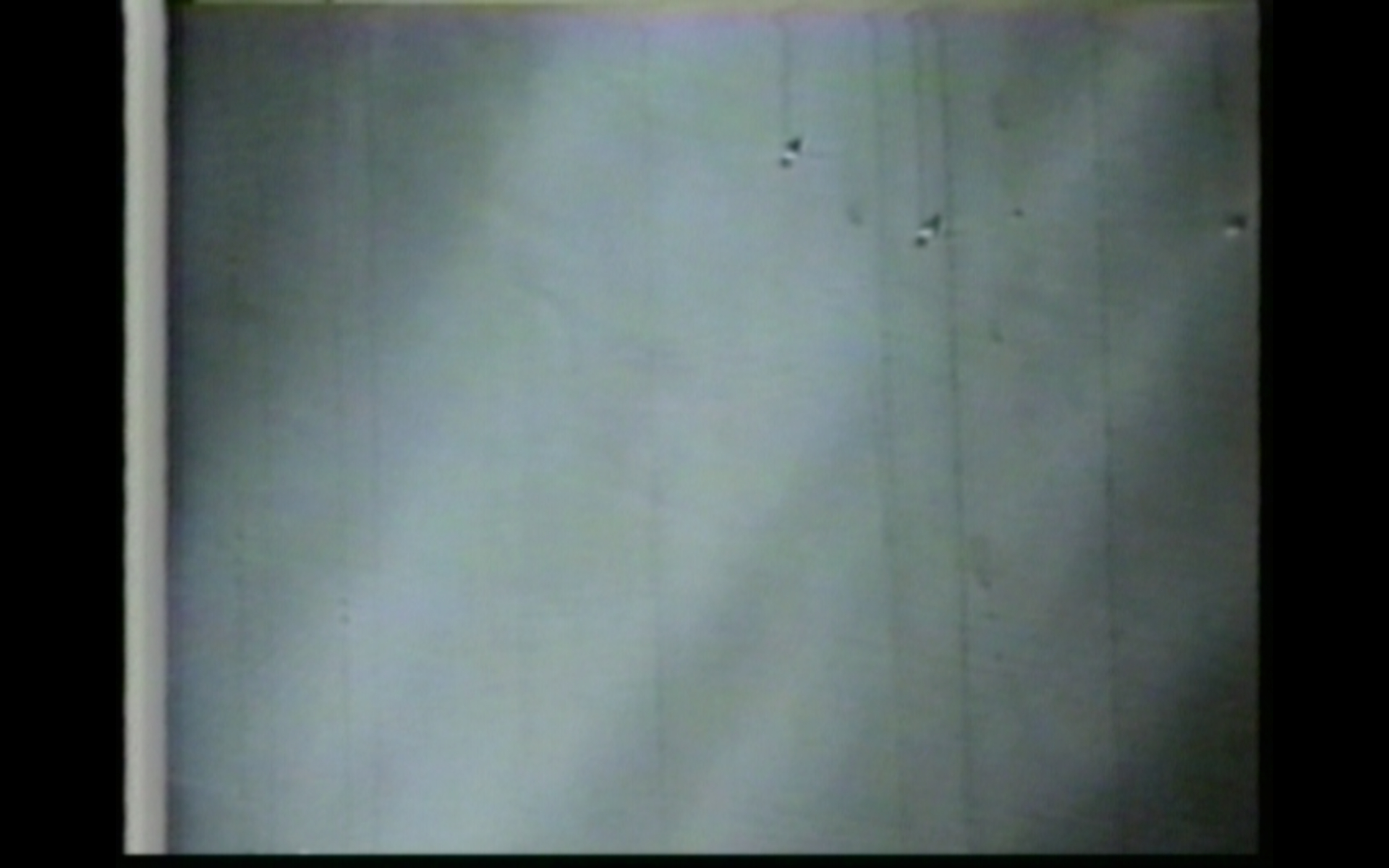
Video 8, single-channel, colour and sound, 3 min 12 sec